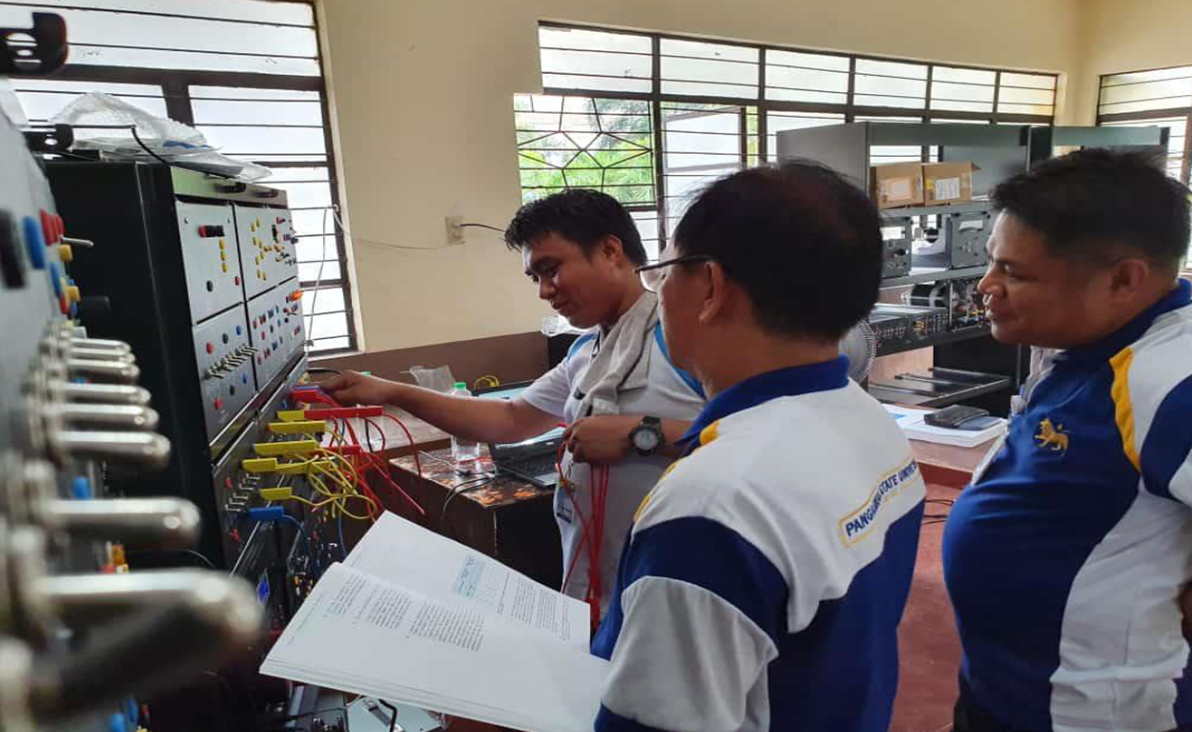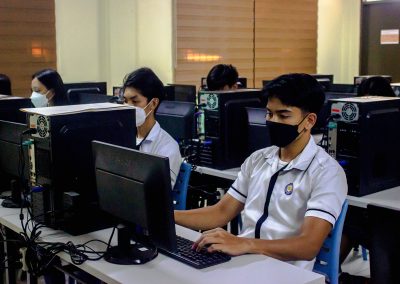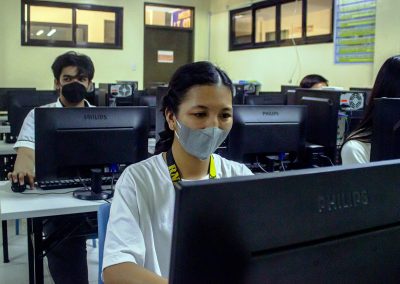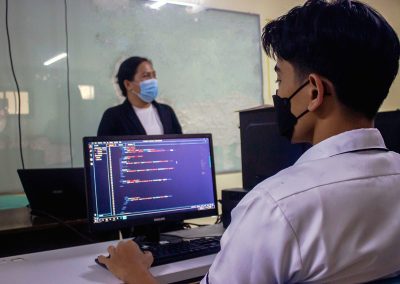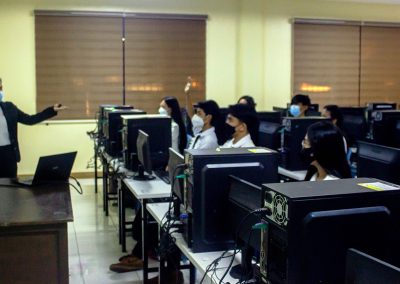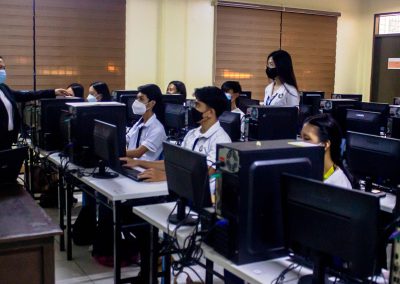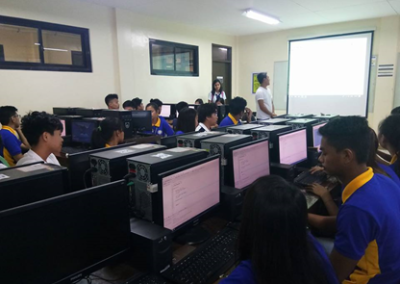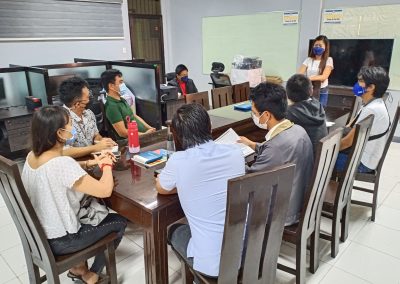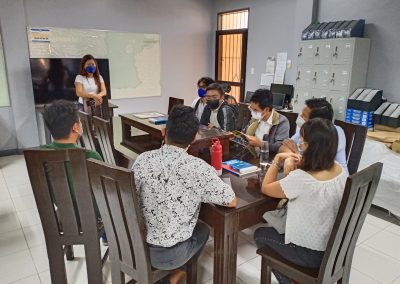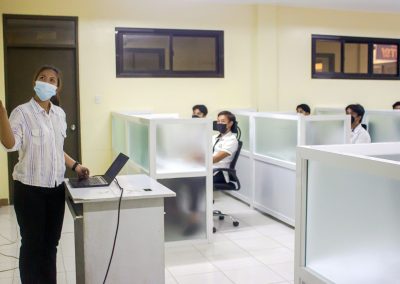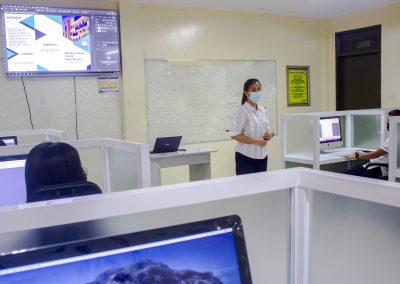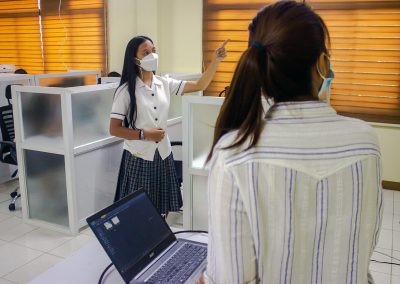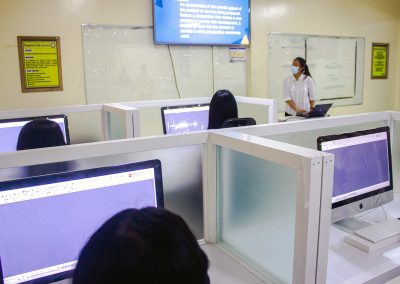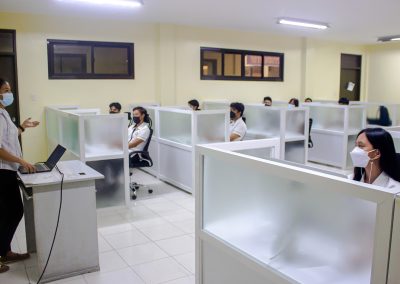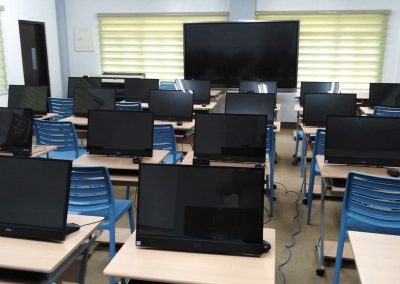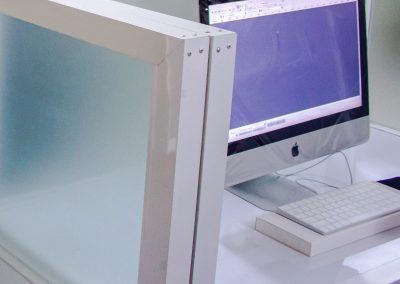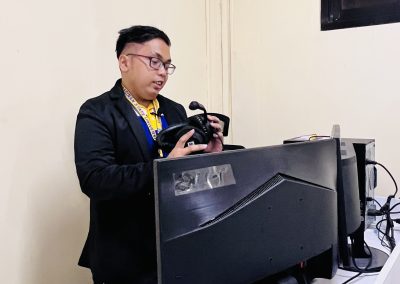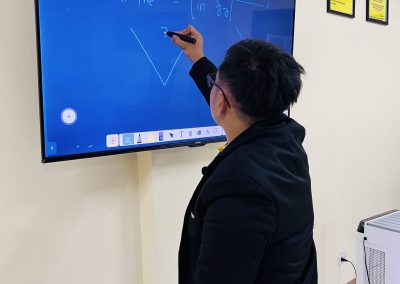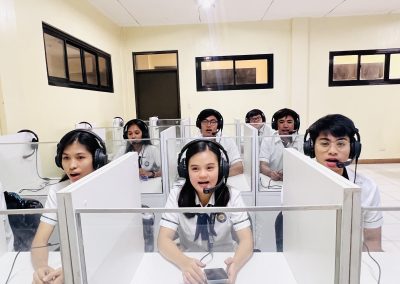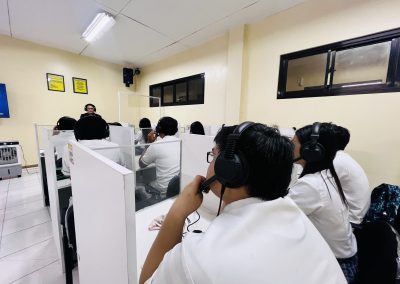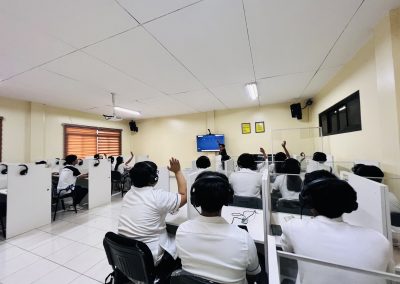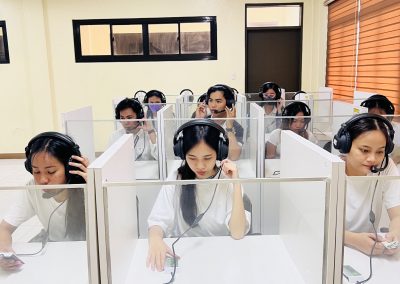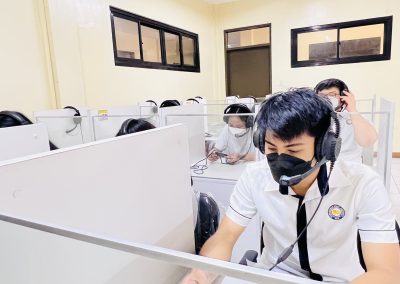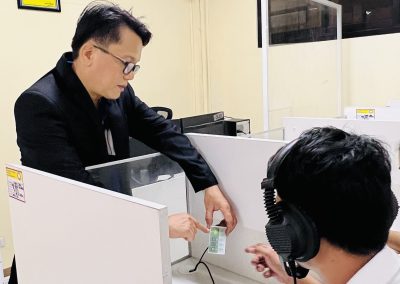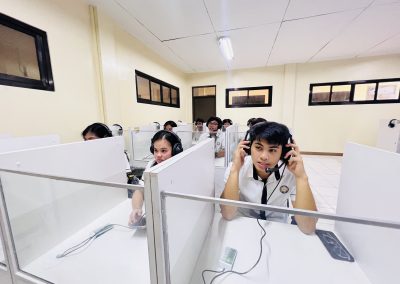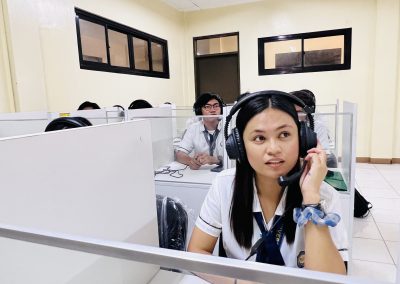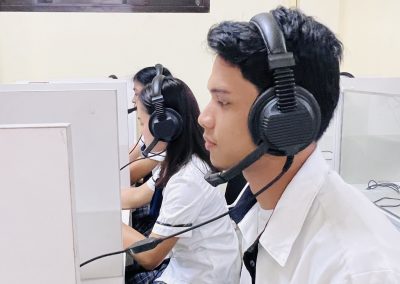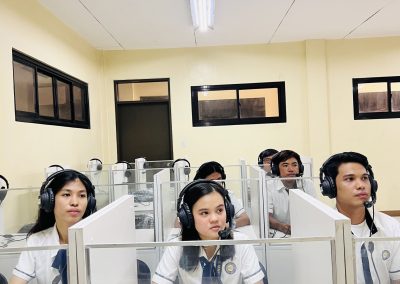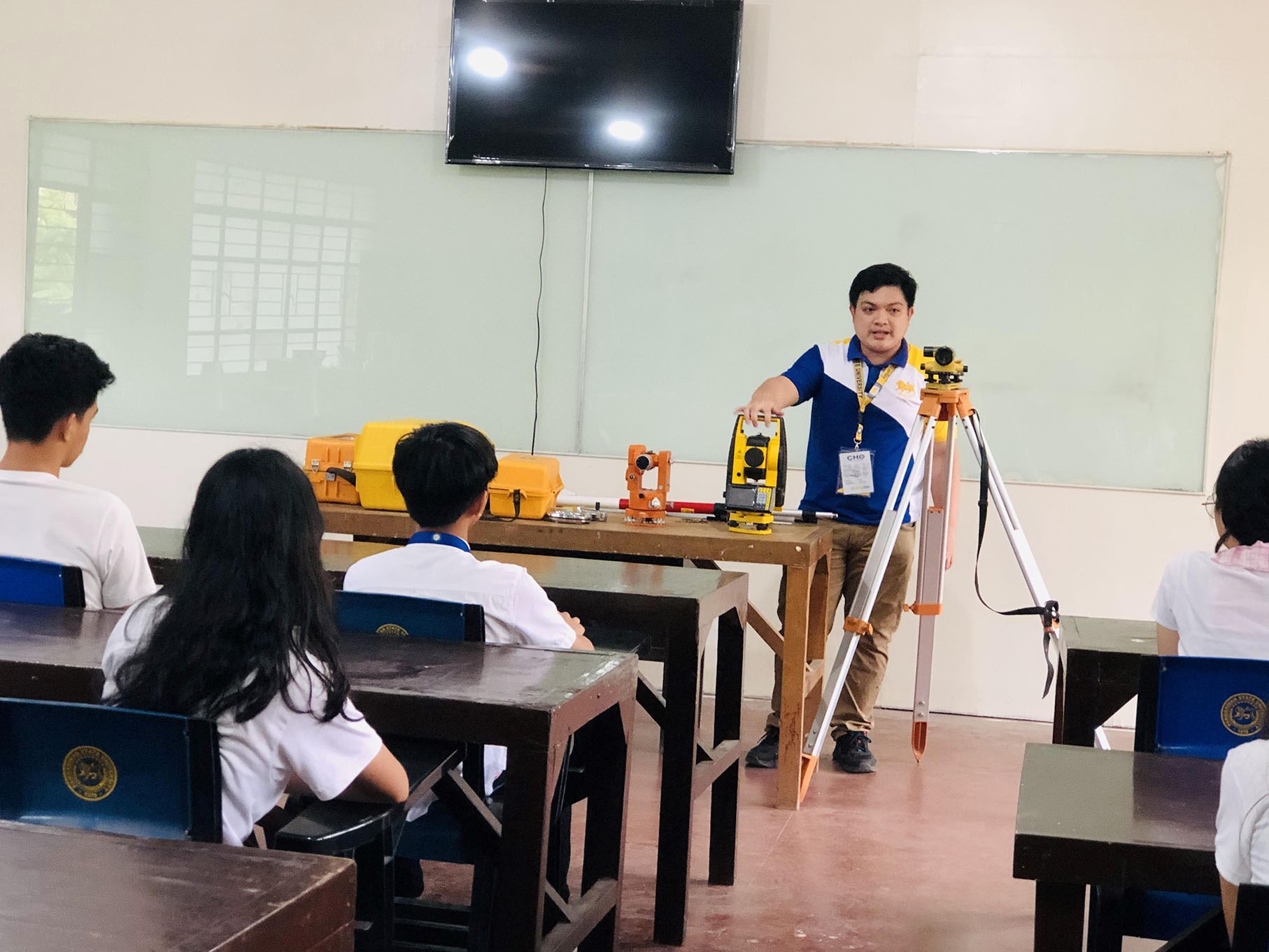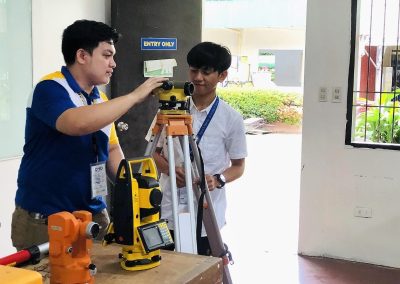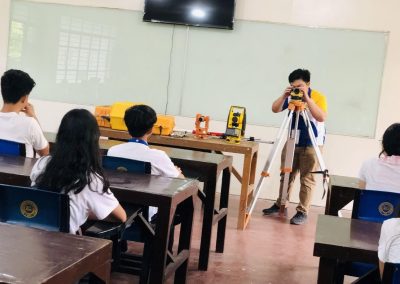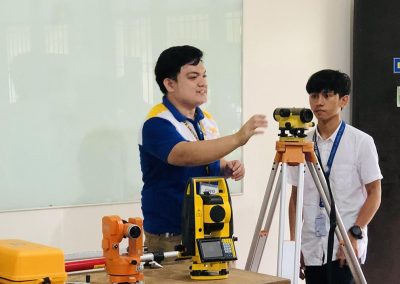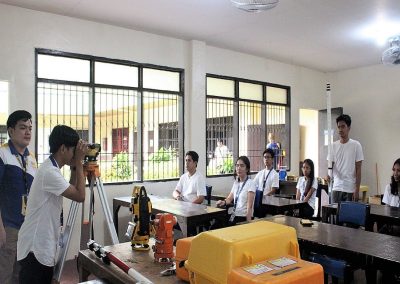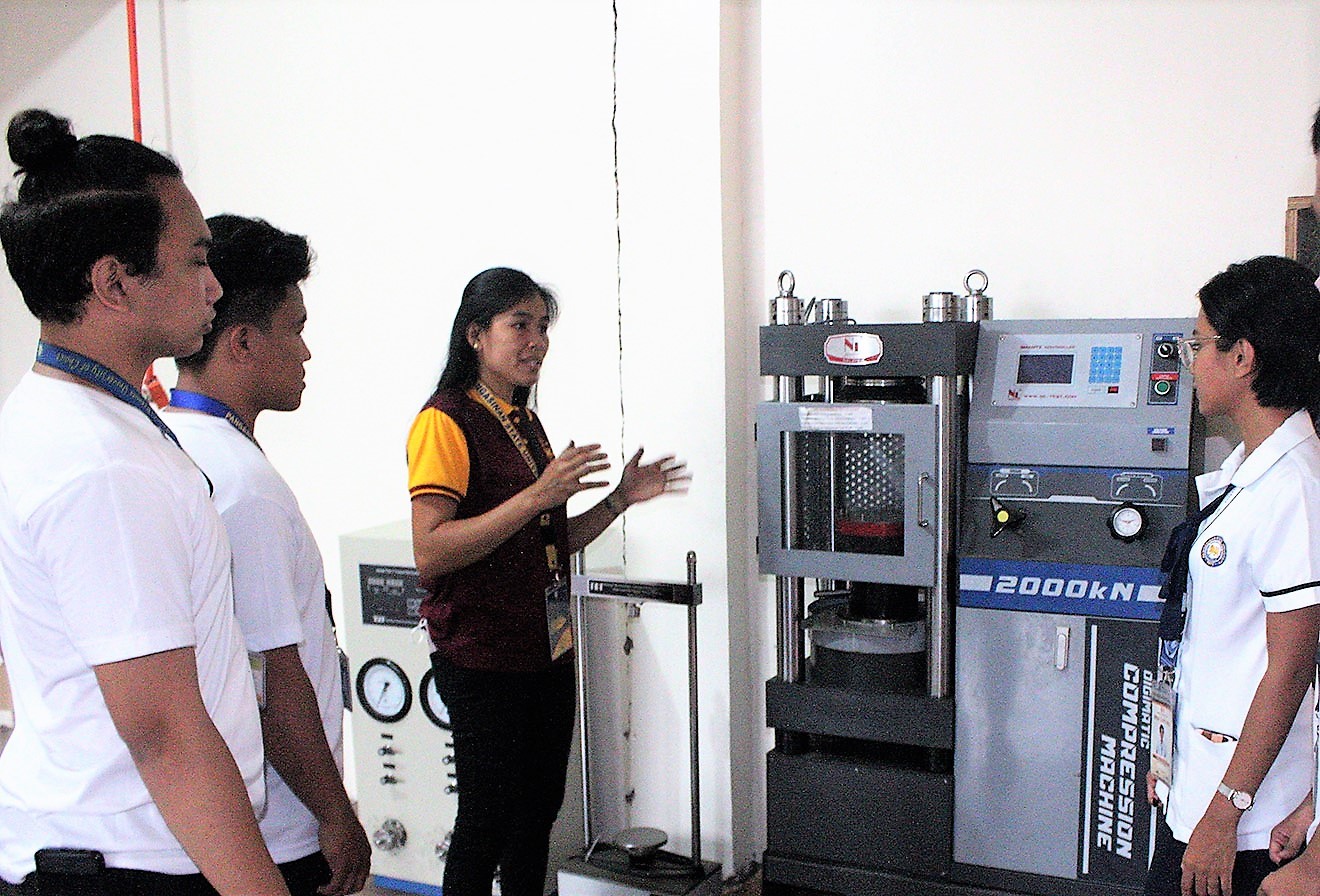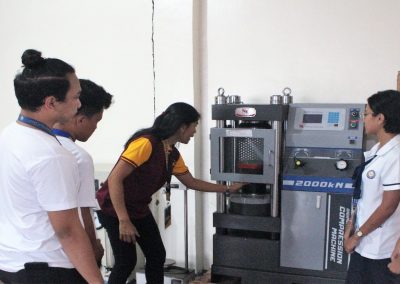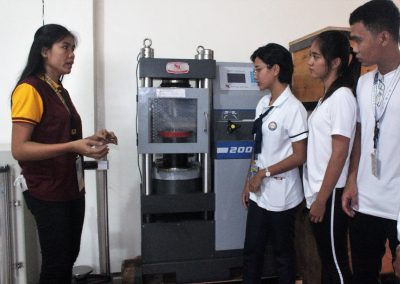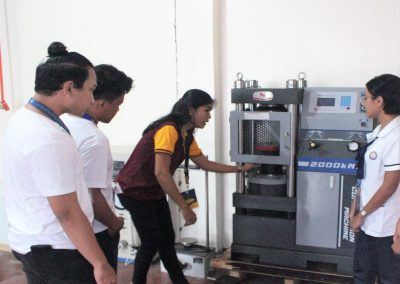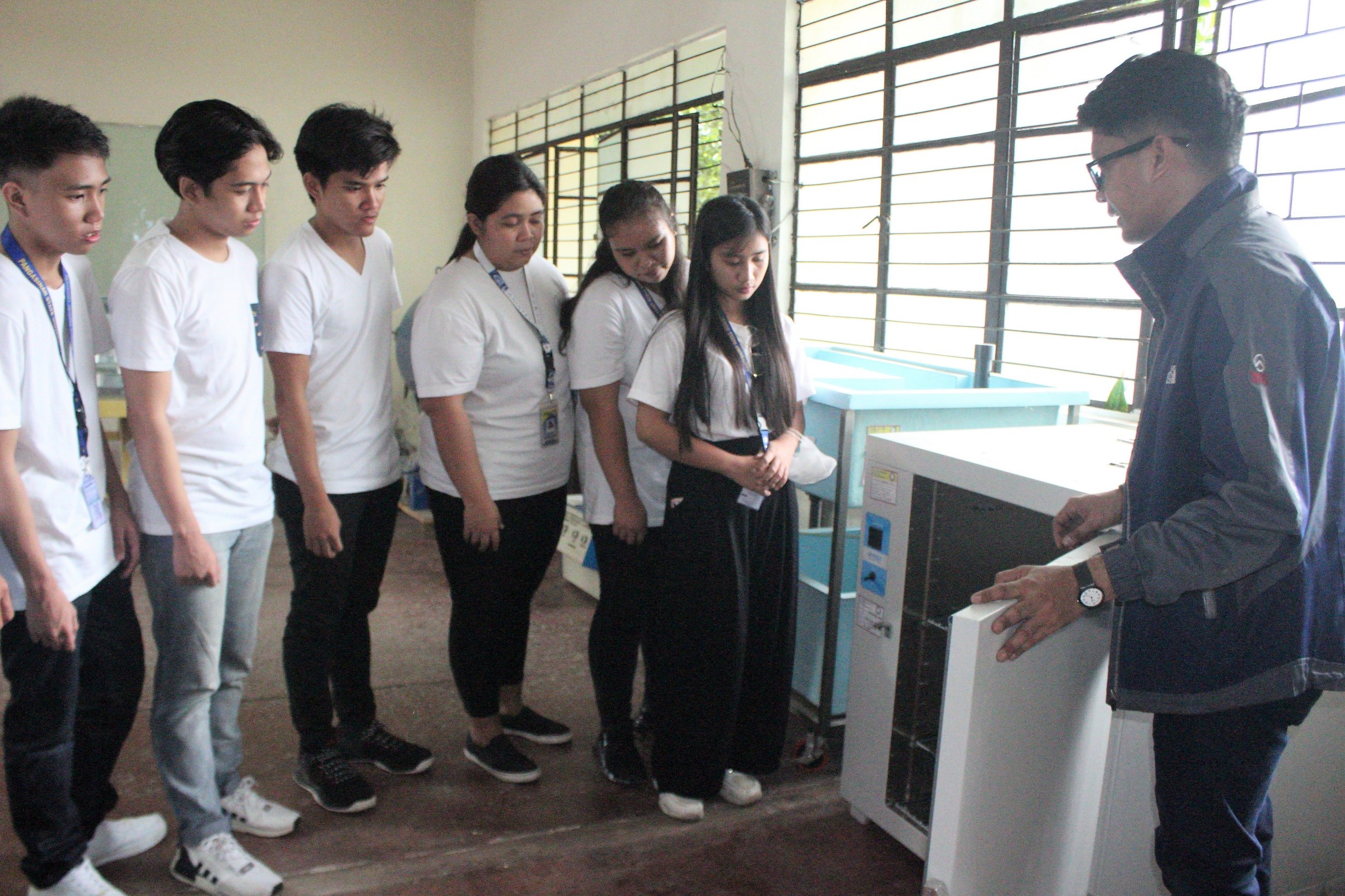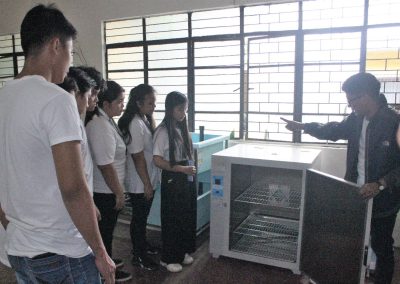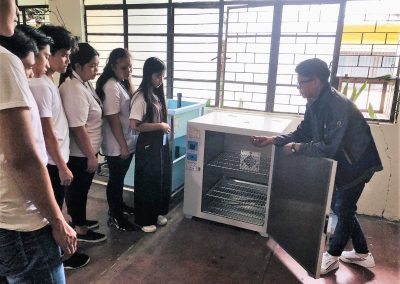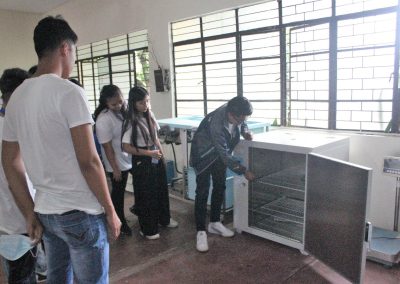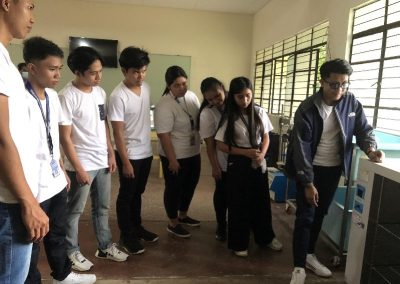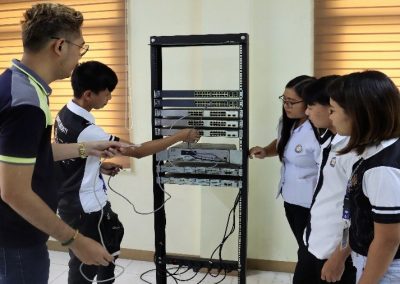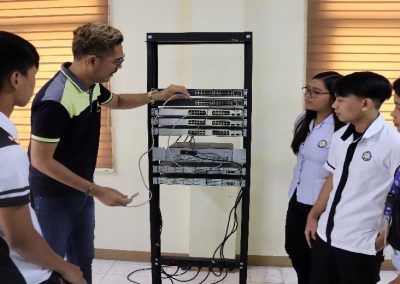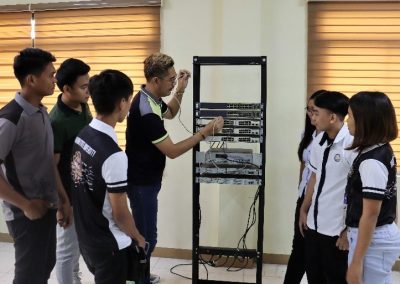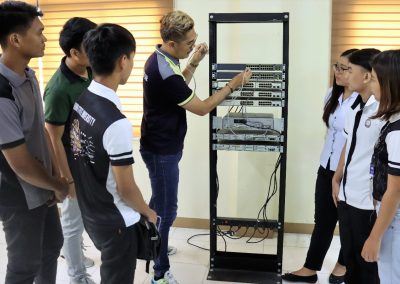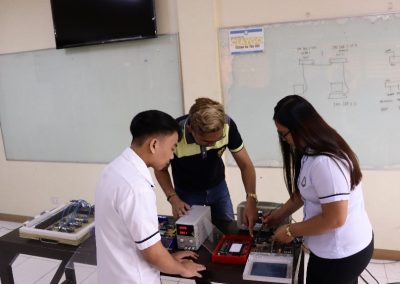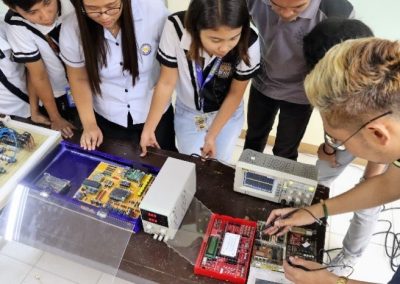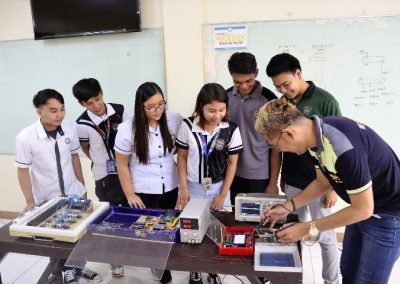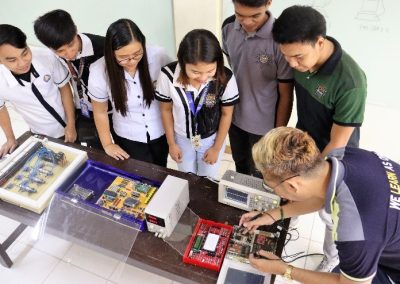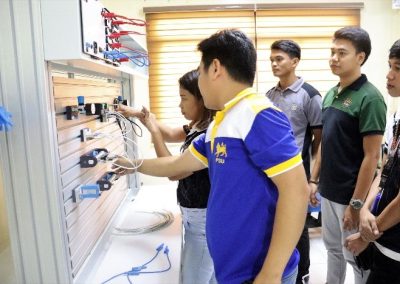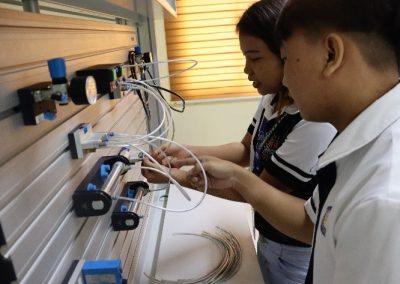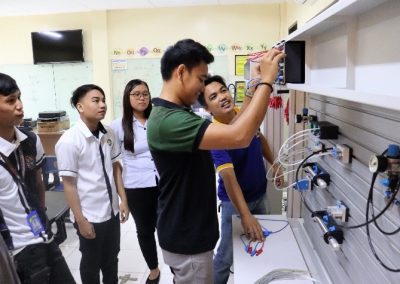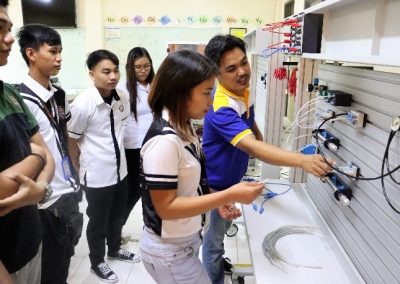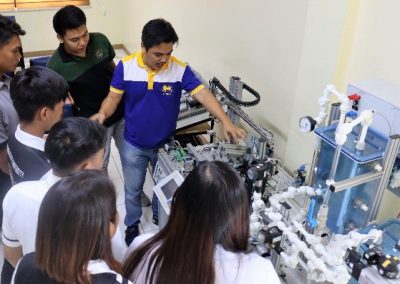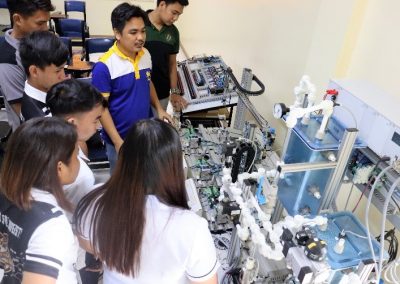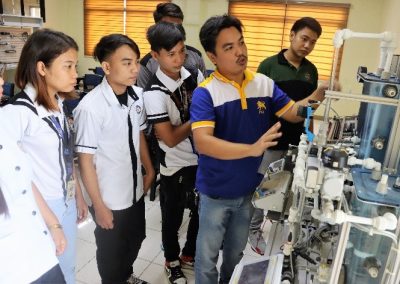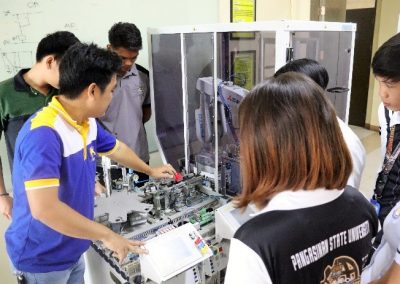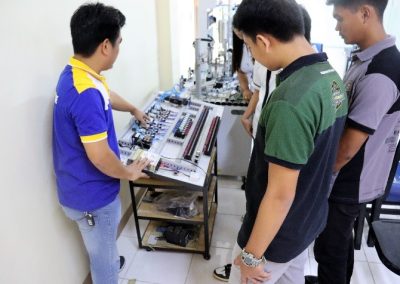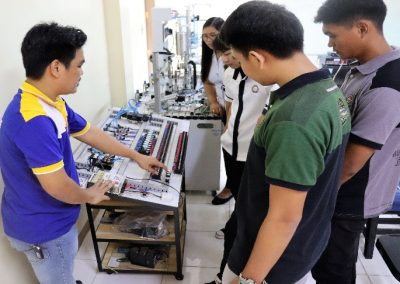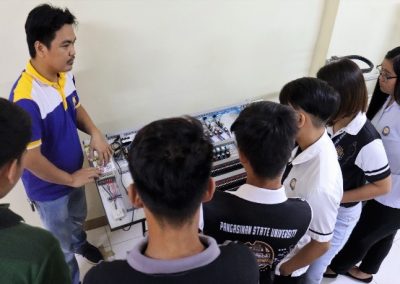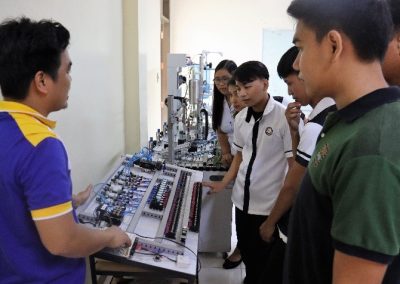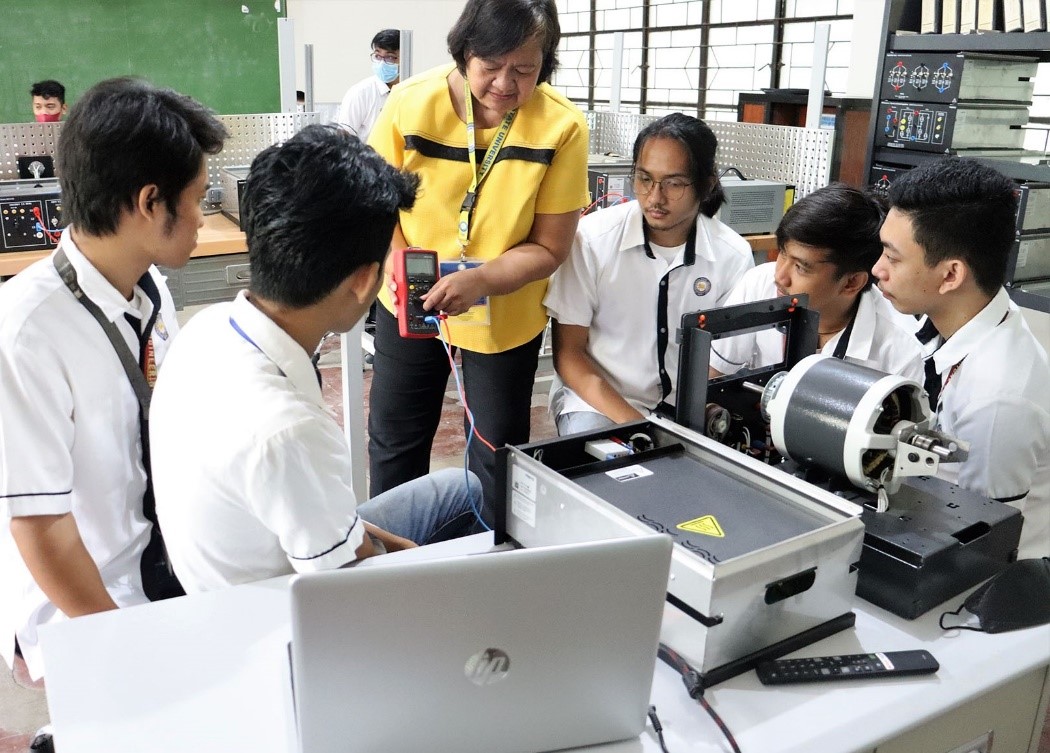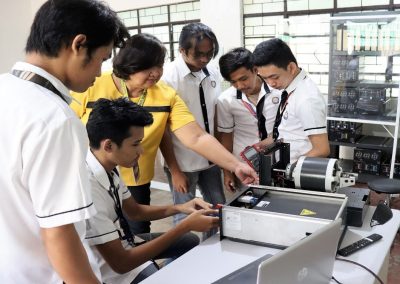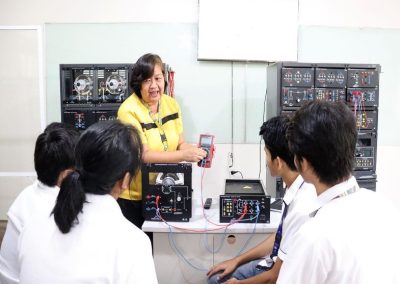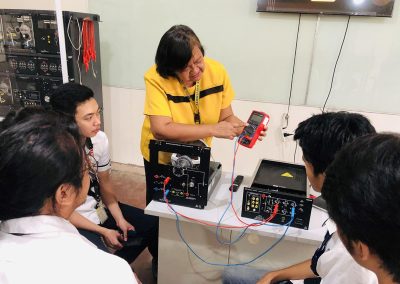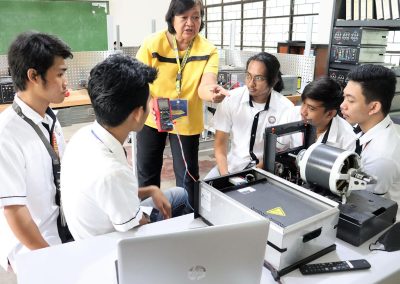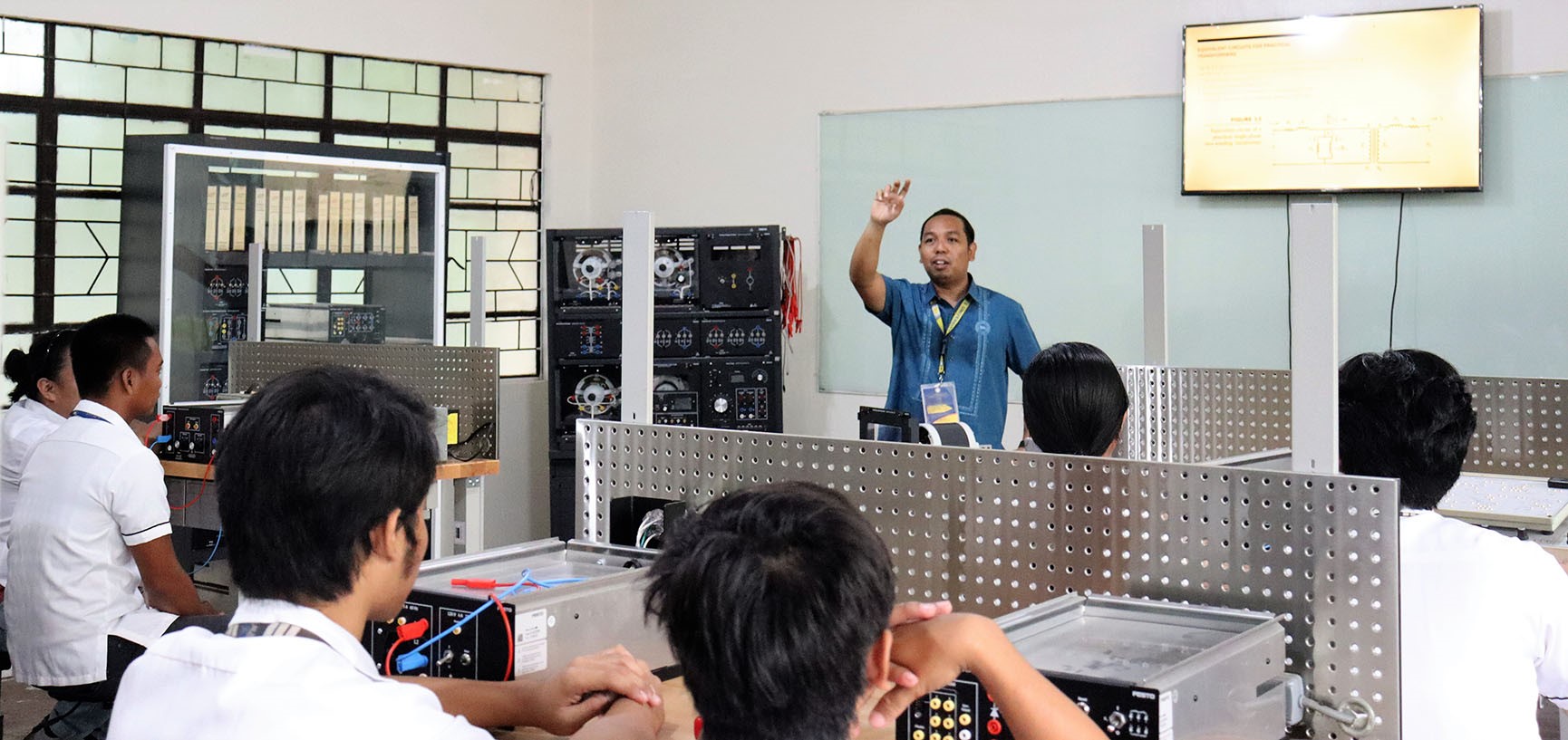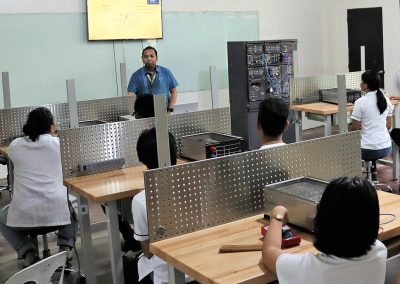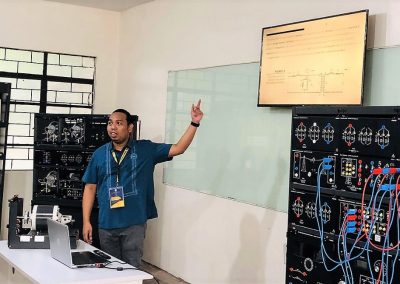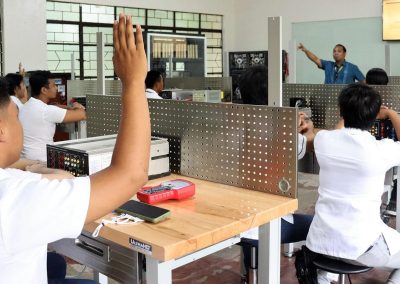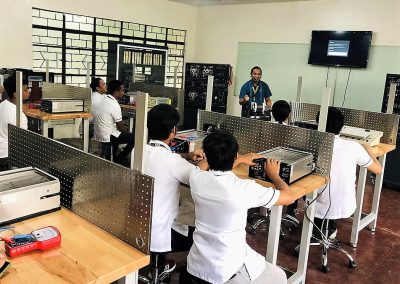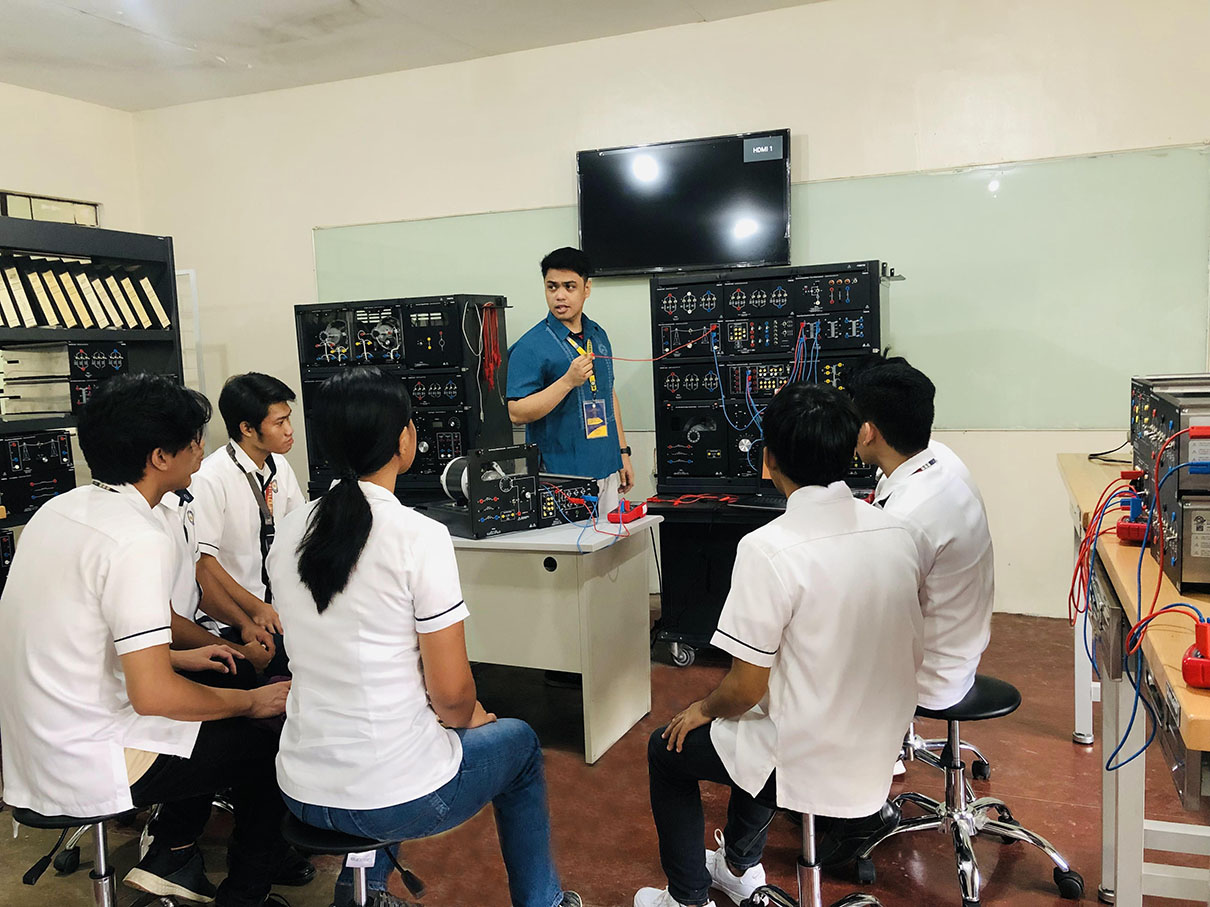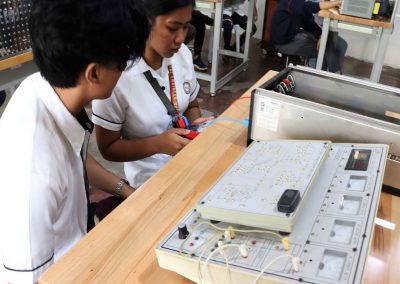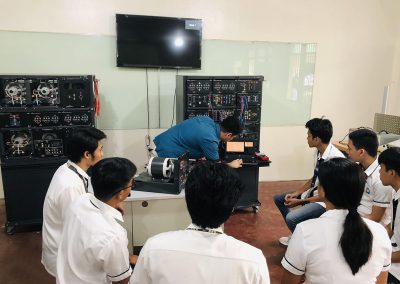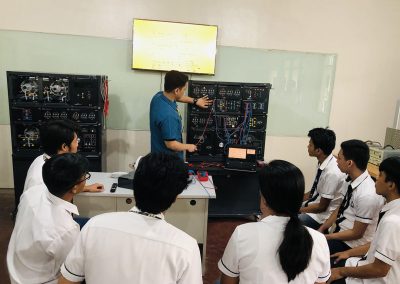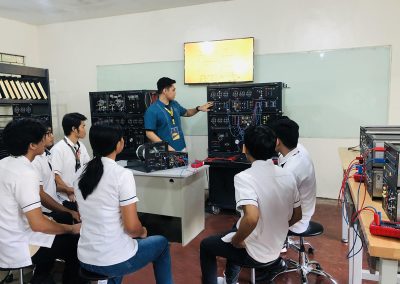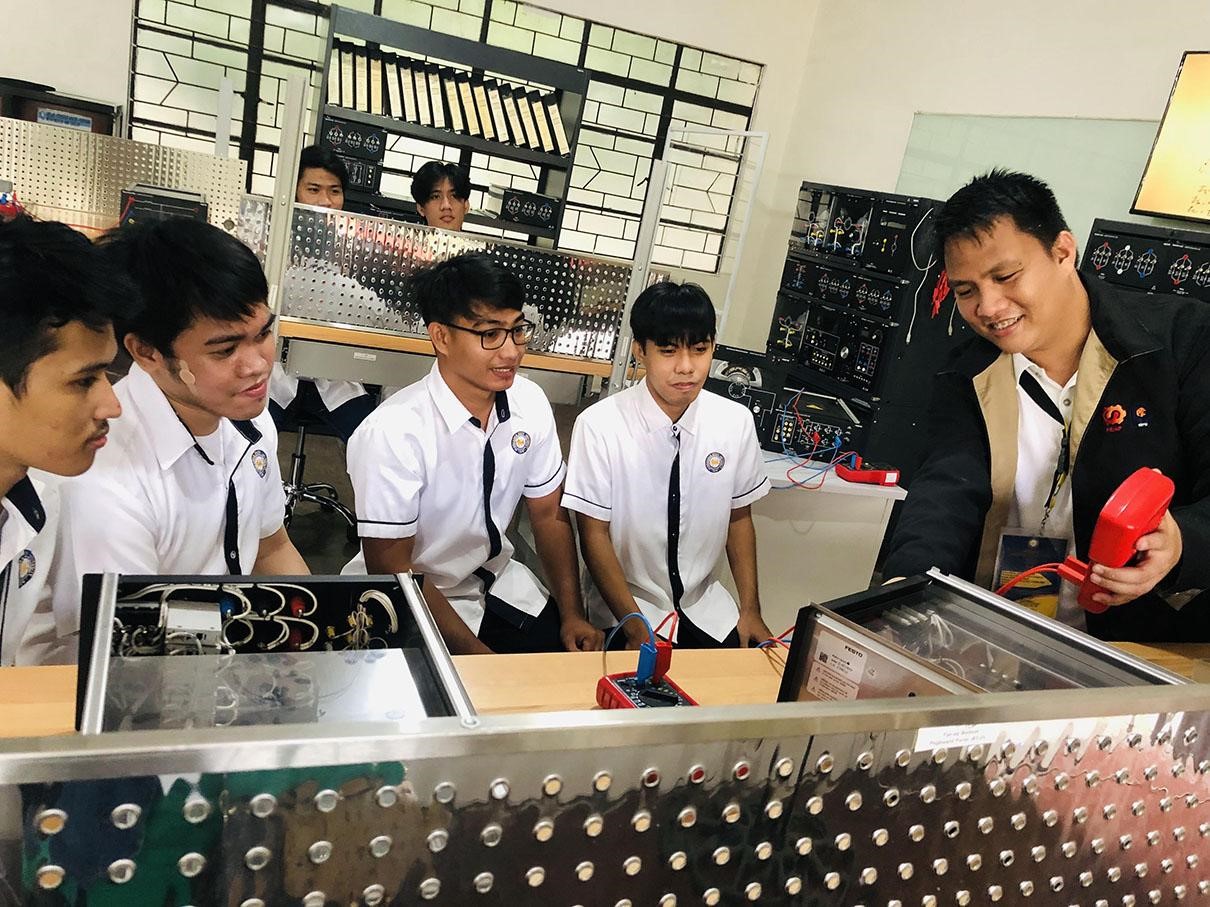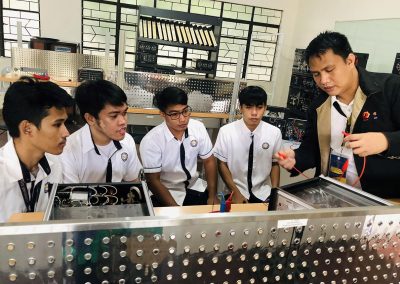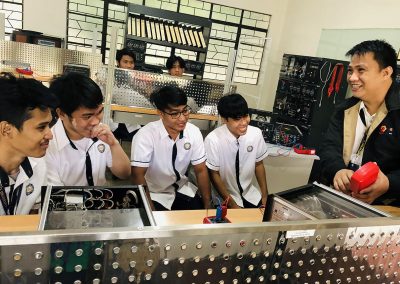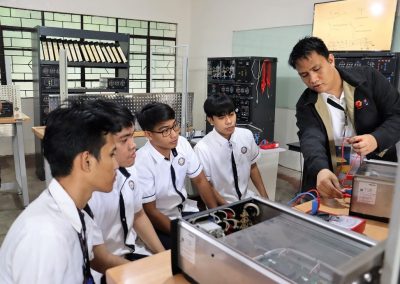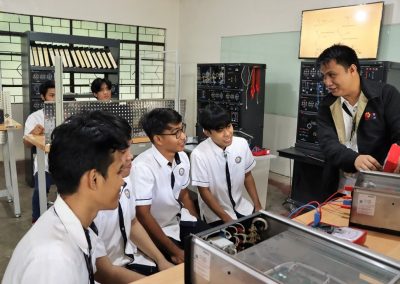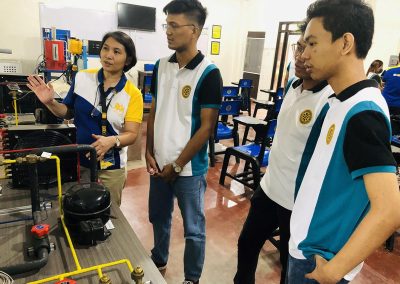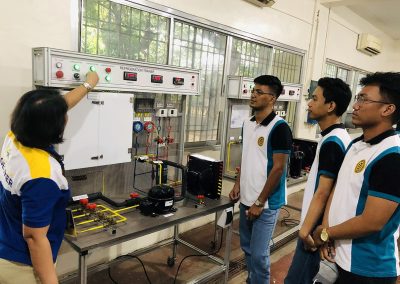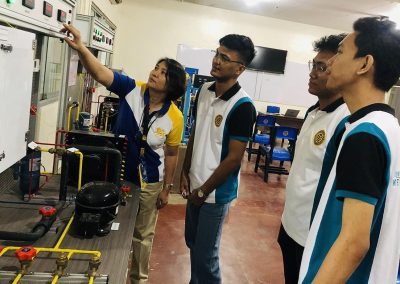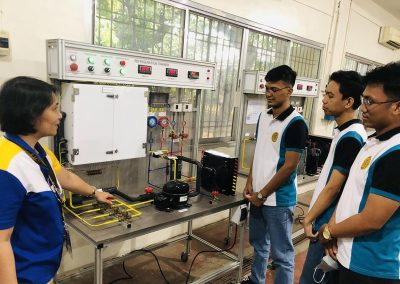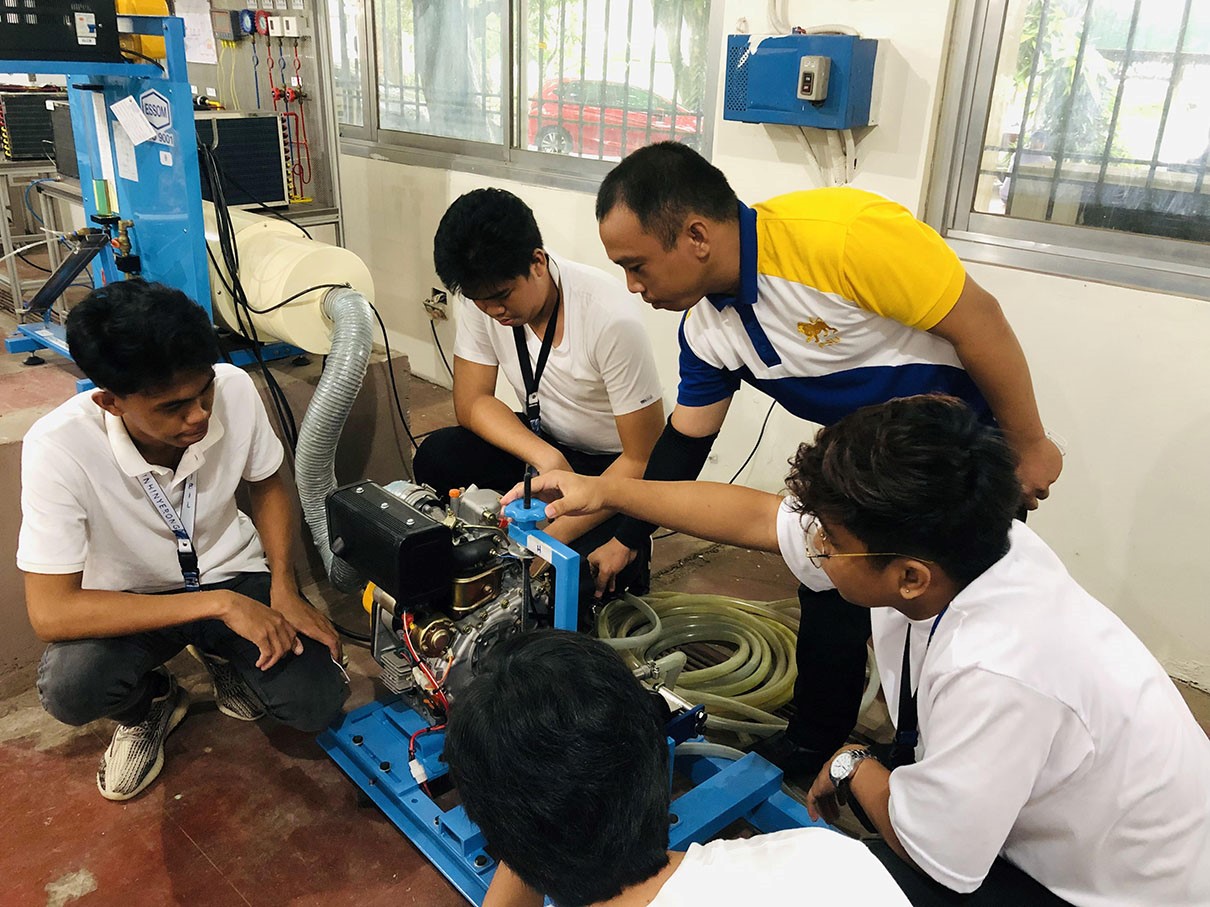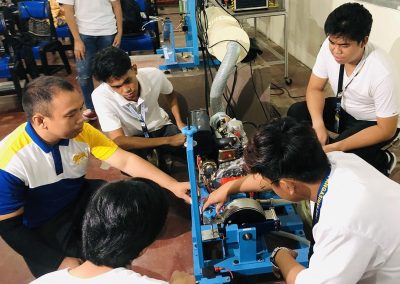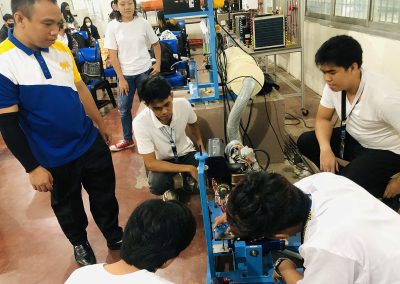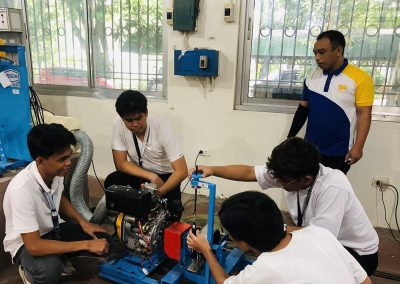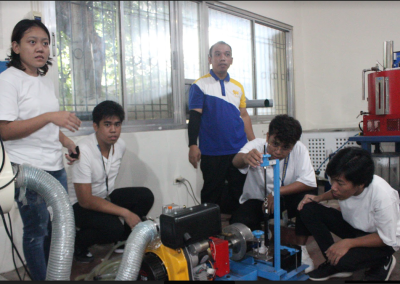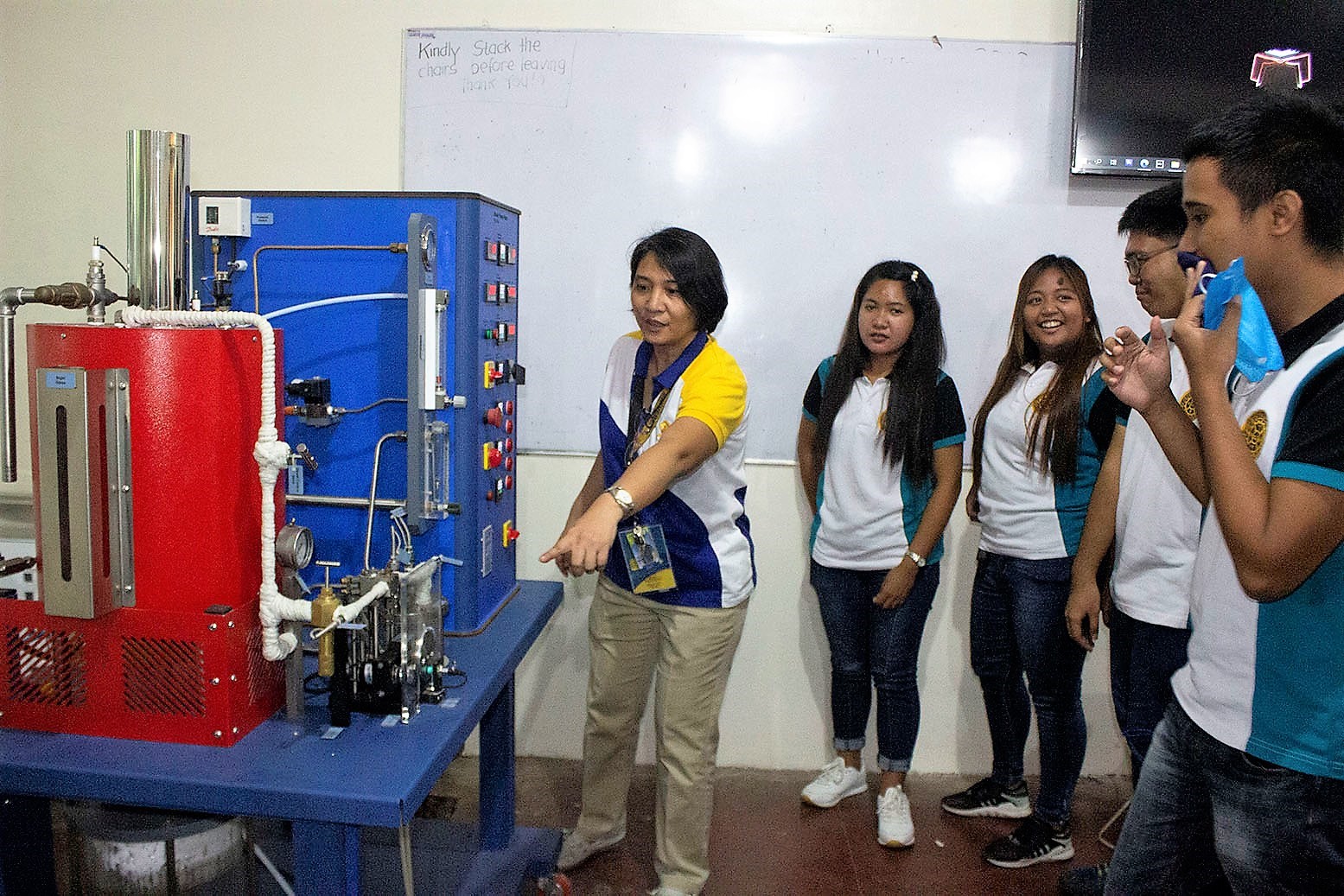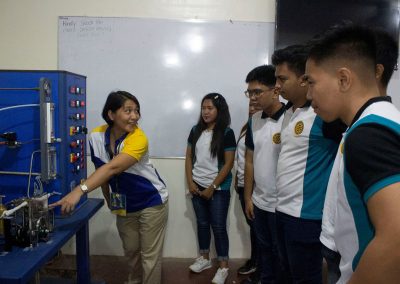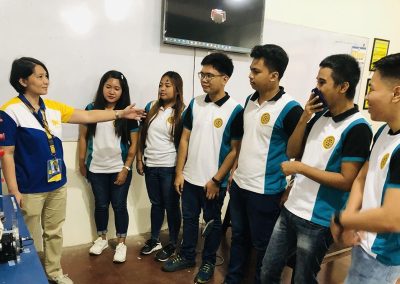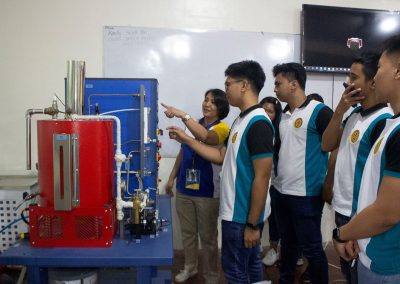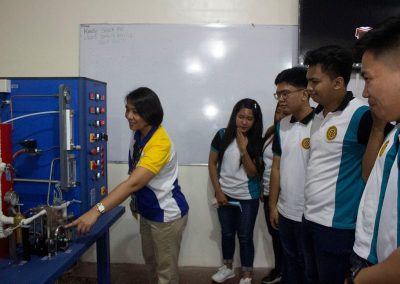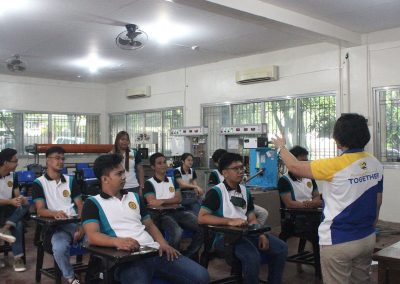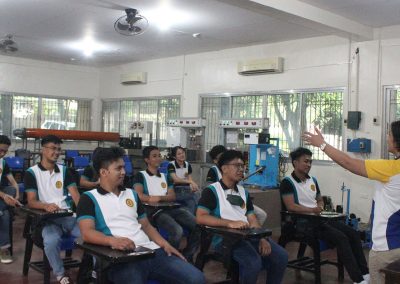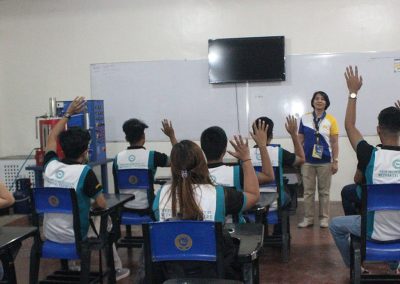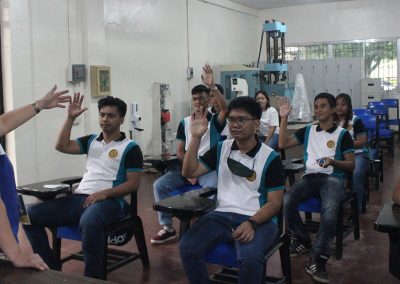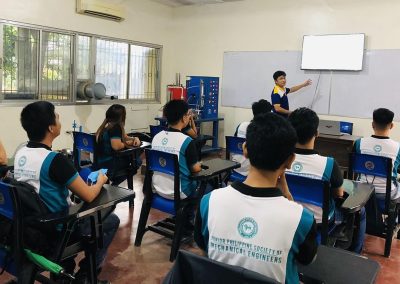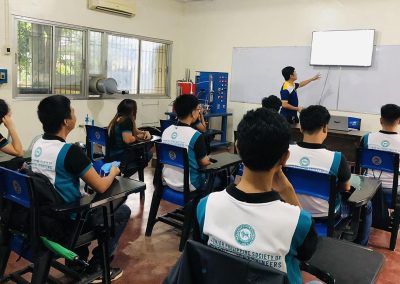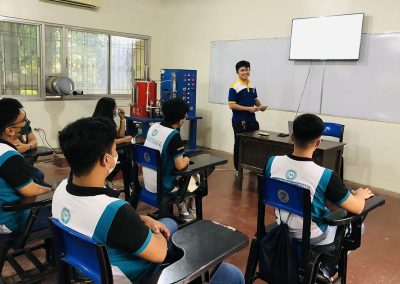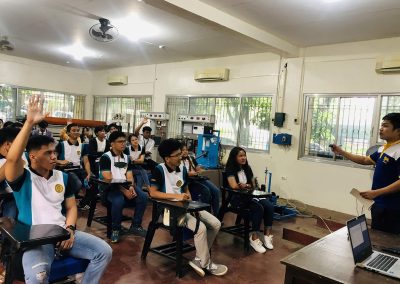College of Computing
COMPUTER LABORATORY ROOMS AND DATA ANALYTICS CENTER
Despite the fact that technology is changing their function, computer labs continue to be an important part of today’s schools for a variety of reasons. For starters, computer labs offer inclusive, structured learning environments in which students can prepare for a technologically advanced future. Computer laboratories provide students with access to training and development of their computer literacy, allowing them to be proficient in the current technologies available. In addition, the Data Analytics Center allows for greater data analysis and interpretation, which helps to raise the level and quality of research.
In addition, the campus has a full computer lab and data analytics workstations, which offer more computing power and screen space than mobile devices and frequently required for subjects such as advanced programming and computer-related subjects.
MULTIMEDIA ROOM , IMAC COMPUTER LAB AND SMART LAB
In addition to computer units that run Microsoft operating systems, iMac computers contribute to our IT students’ overall learning experience. For visual and auditory convenience, presentations and other related activities are held in the Multimedia Lab. These facilities host technologically driven activities and presentations. This, on the other hand, provides students with incredible hands-on experience, particularly at a higher technological level.
College of Arts and Education
Speech Laboratory
The speech laboratory at Pangasinan State University – Urdaneta City Campus is extremely useful for evaluating students’ speech. It gives students the technical tools they need to get the best pronunciation samples of the language. The electronic devices in the laboratory will stimulate the learner’s eyes and ears, allowing them to learn the target language easily.
The laboratory collection is designed to assist students in developing and maintaining their language, oral and written competence, and cultural awareness. In the target language, the speech laboratory offers web-assisted materials and videotaped off-air recordings. In short, the laboratory allows a learner to gain experience interacting with native speakers.
College of Engineering and Architecture
Civil Engineering
The Civil Engineering Laboratory is primarily used for subjects such as Engineering Surveying, Construction Material Testing, Geotechnical Engineering, and Hydraulics, to name a few.
A compression testing machine is used to determine concrete strength in their CMT subject, while the slump cone test is used to determine concrete consistency. In contrast, geotechnical engineering teaches students how to determine soil properties. While Engineering Surveying teaches students about land and road surveying area measurement, Hydraulics teaches students about the practical application of fluids.
This clearly demonstrates the critical role that the CE Laboratory plays in civil engineering students’ learning.
the uses of the different parts of a non-digital theodolite, a total station theodolite, and an automatic level.
Computer Engineering
Computer Engineering offers two tracks, one of which is Systems Network Administration designed to prepare students for a career in the networking field. The degree program covers the design, implementation, management, and troubleshooting of network infrastructure. Microsoft client and server operating systems, Unix client and server operating systems, computer hardware, network hardware, routing, security, and server applications are some of the topics covered.
Engr. Kenneth S. Viray, a computer engineering faculty member, teaches fourth-year computer engineering students about computer networking fundamentals in Systems Network Administration 1, one of the electives for the Systems Network Administration track.
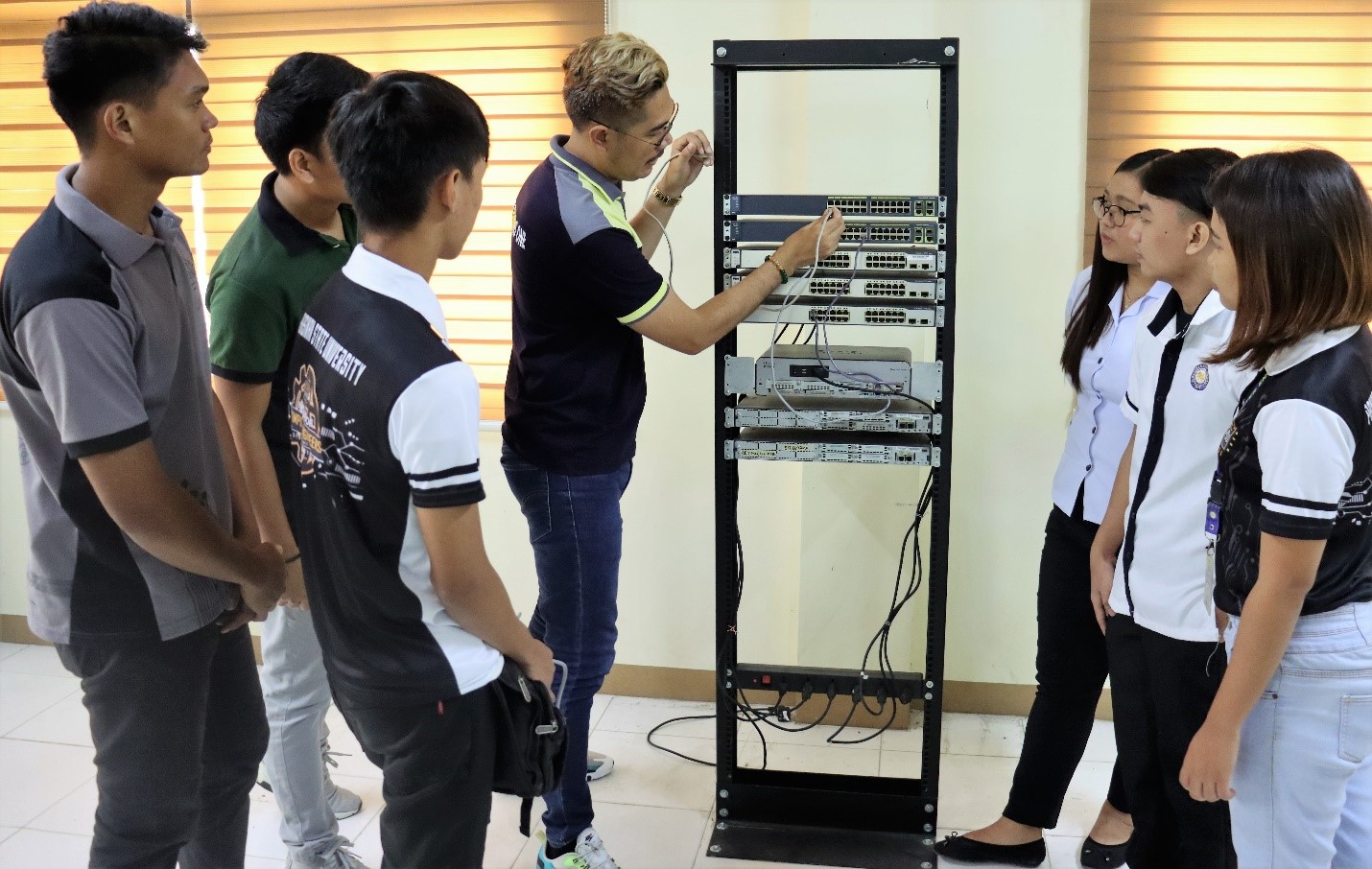
In this course, students learn how to operate different electronic test equipment, such as an oscilloscope which is used to show waveforms of electronic signals such as frequency, noise, and amplitude. Engr. Kenneth S. Viray, a computer engineering faculty member, teaches fourth-year computer engineering students how to use an oscilloscope an electronic test instrument that graphically displays varying electrical voltages in the Embedded System course of computer engineering.
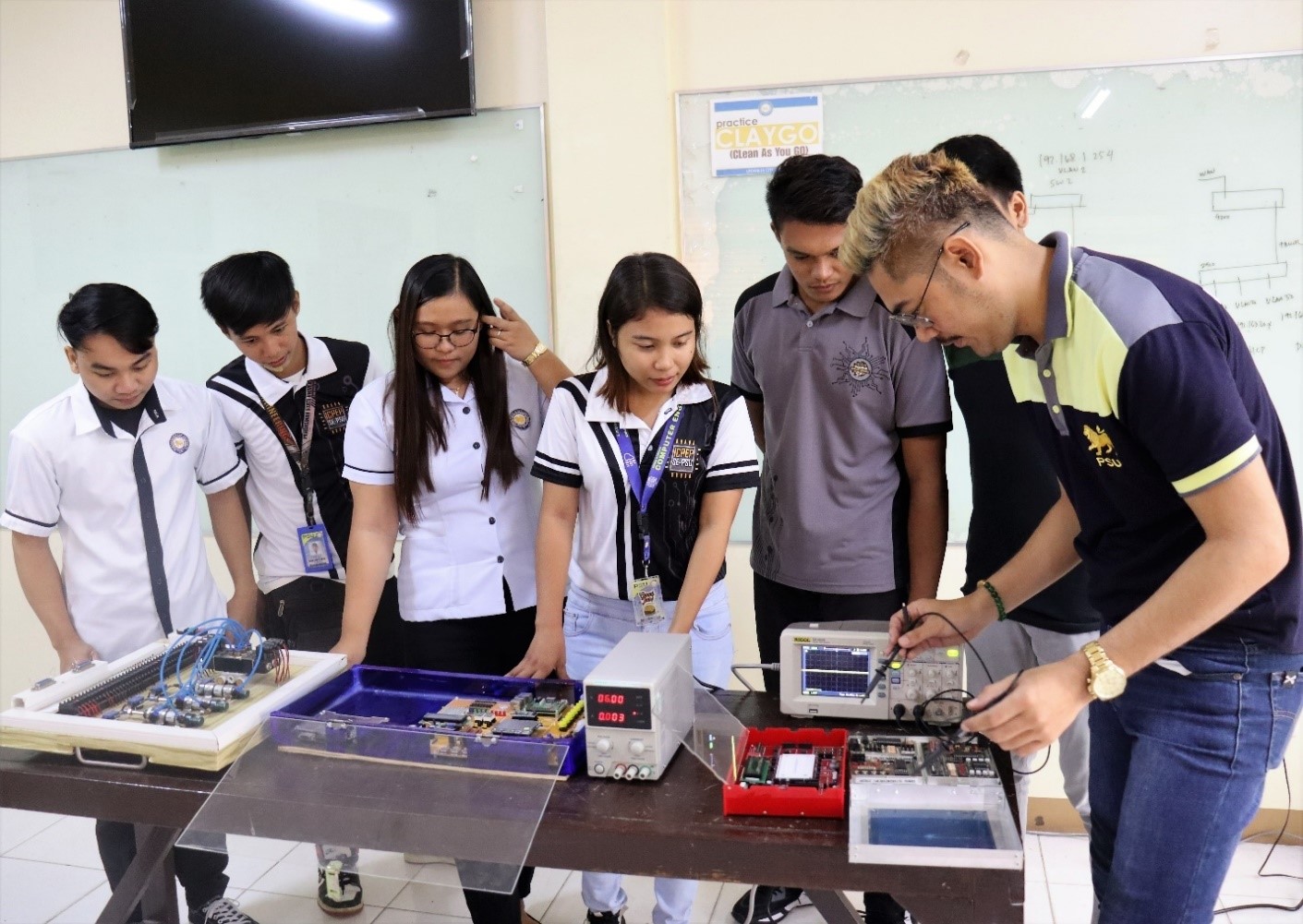
There are three electives for the Embedded Systems track, one of which is Robotics, which provides students with a basic overview of the operation, design, and function of different pneumatic and electro-pneumatic fundamentals commonly used in the industries. Engr. Rex Basuel a computer engineering faculty member, demonstrate to fourth-year computer engineering students the fundamentals of Pneumatic and Electropneumatic in the Embedded System course of computer engineering.
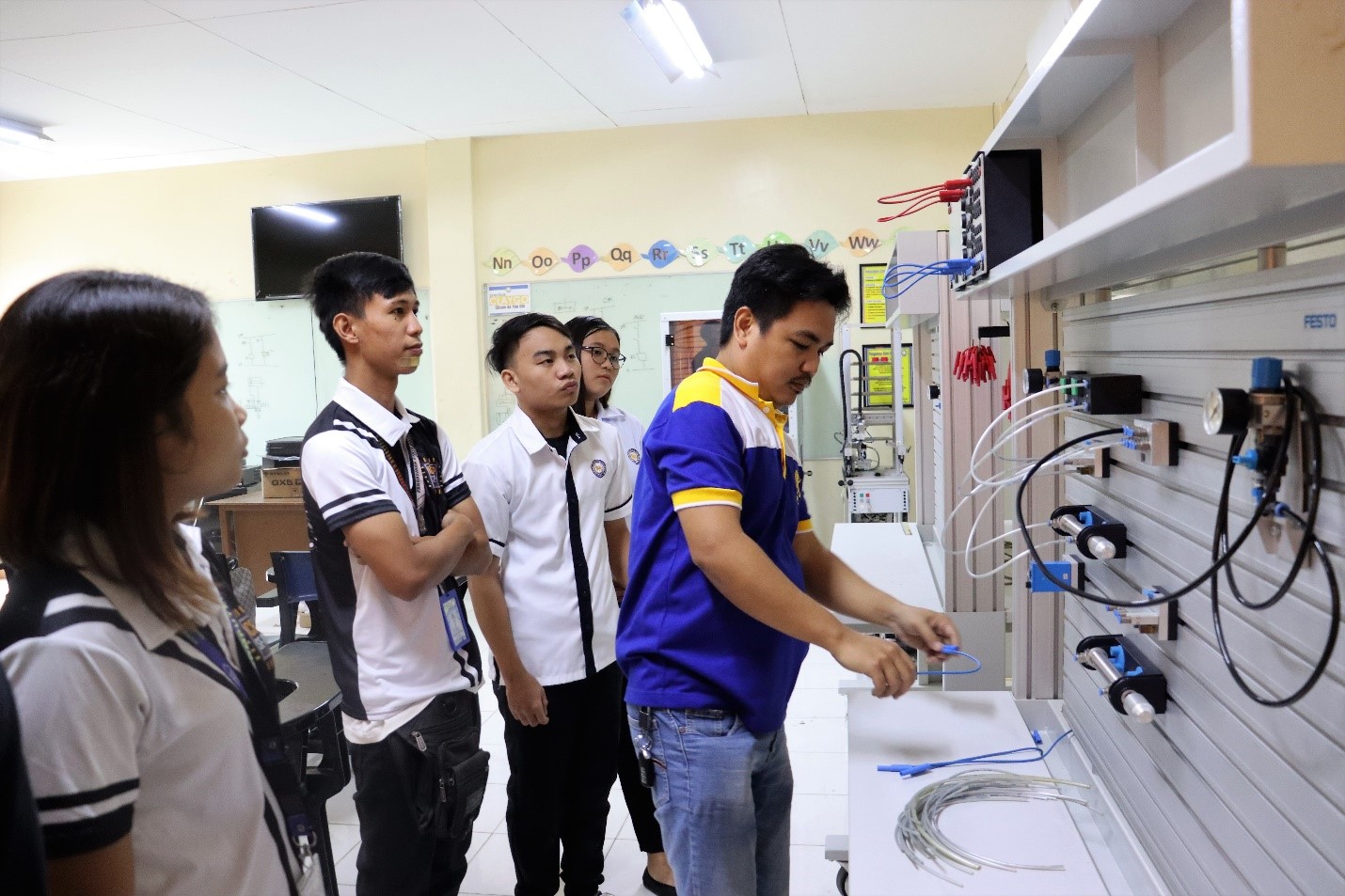
Factory automation and Industry 4.0 are two topics taught in computer engineering that explore the integration of automation from end-to-end production processes. Automation in industrial settings often use technologies such as pneumatic systems, hydraulic systems, and robotic arms to create more complex systems. Engr. Rex Basuel discusses to fourth-year computer engineering students the Factory automation and Industry 4.0 in the Embedded System course of computer engineering.
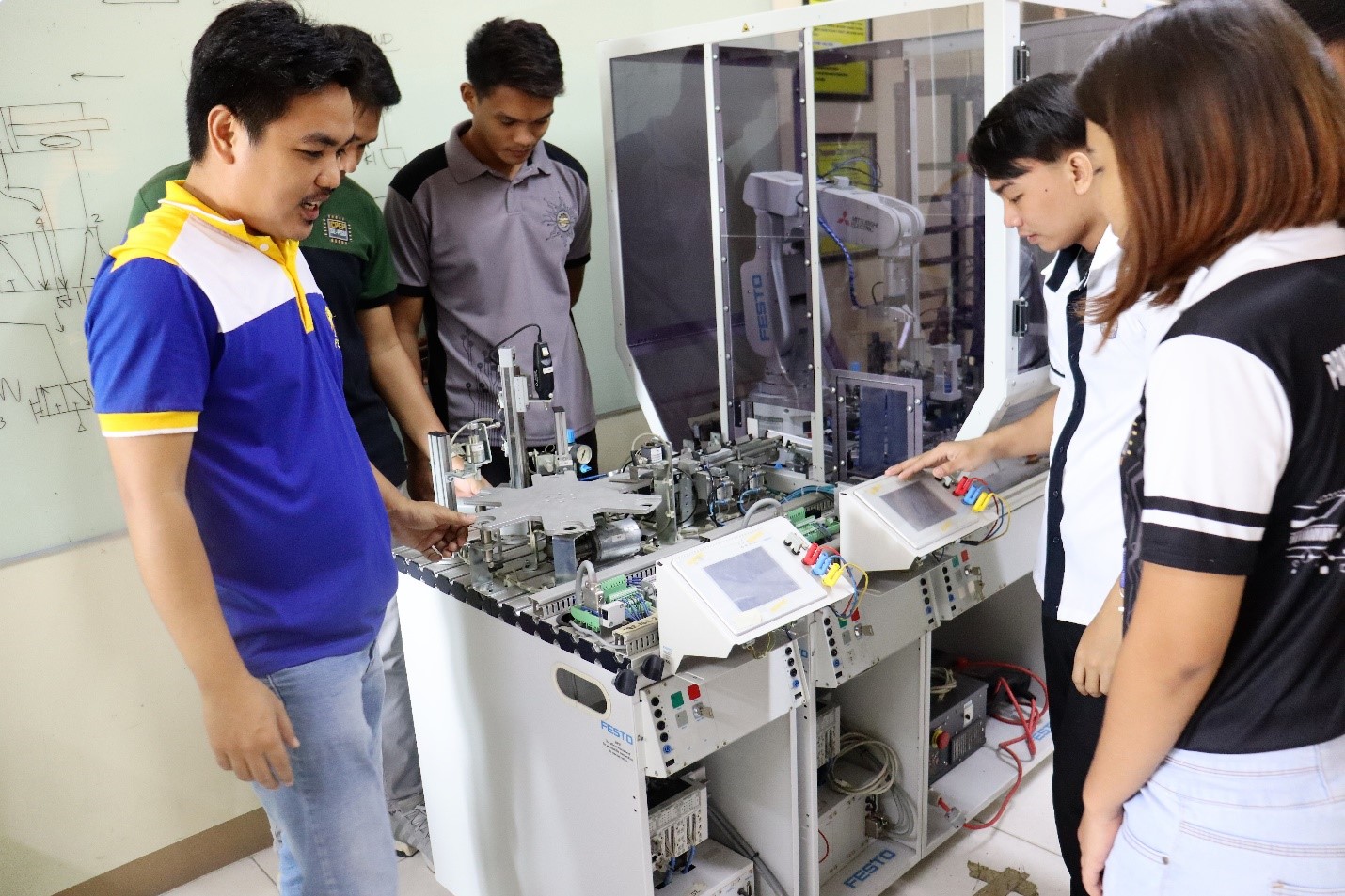
Students in this course are prepared for the TESDA National Assessment for Mechatronics NC 2, 3, and 4. Engr. Rex Basuel prepare fourth-year computer engineering students for TESDA National Assessment for Mechatronics NC 2, 3, and 4 in the Embedded System course of computer engineering.
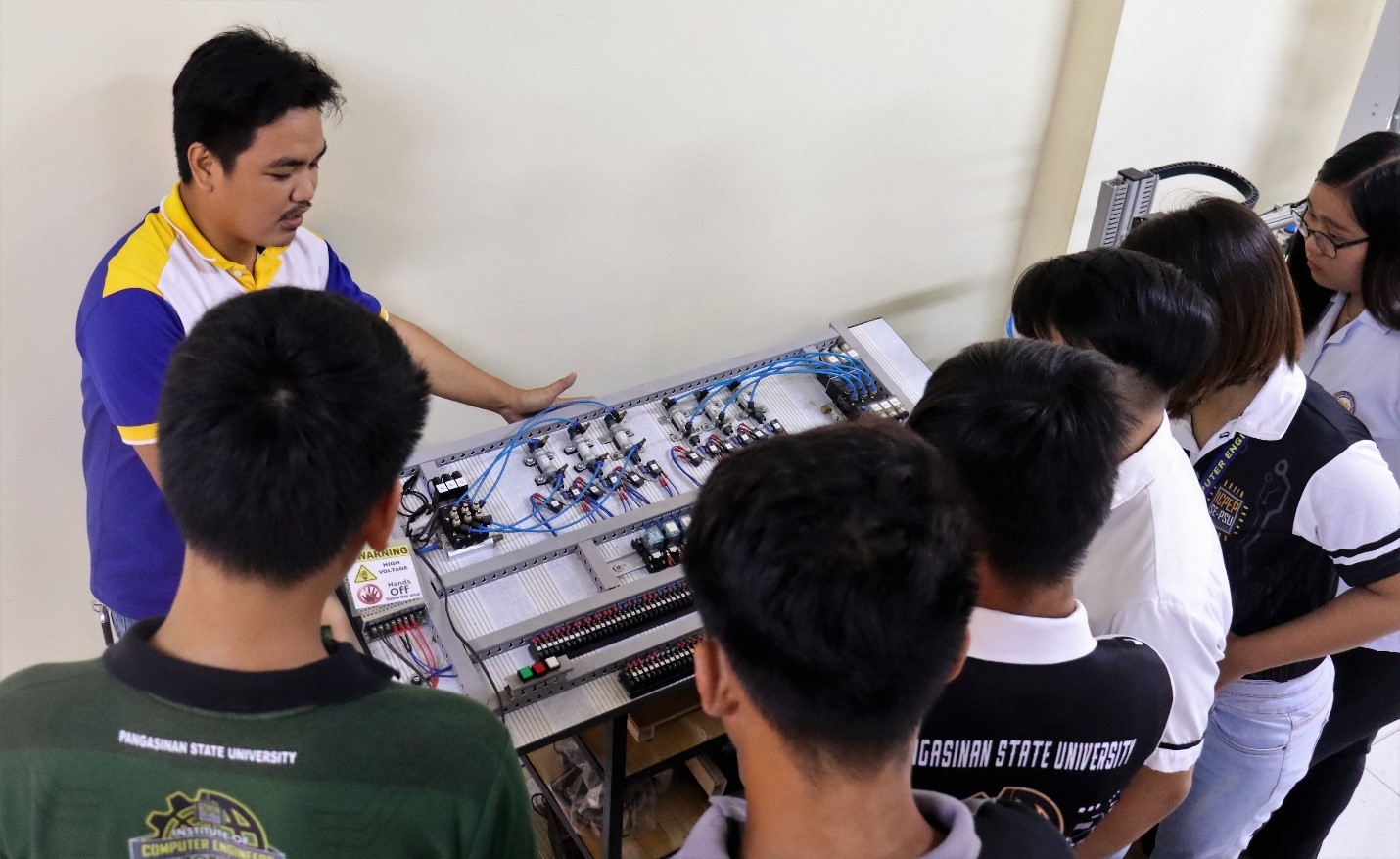
Electrical Engineering
The Electrical Engineering Energy laboratory is a dynamic learning environment with industry-standard equipment for students. It is a training facility that provides electrical engineering students with hands-on experience using industry-standard equipment for electro-mechanical and smart grid. The laboratory is also frequently used in subjects like power system, transmission lines, and electrical circuits 1 and 2.
Further, students are also given the opportunity to present their work and participate in laboratory activities related to their lessons.
Engr. Jeanelyn P. Calip, the Chairman of the Electrical Engineering Department, is conducting her laboratory class with 3rd year Electrical Engineering students in their subject Electrical Machines with the topic Motors. In the picture, Engr. Calip is teaching her students, John Mae Agbanlog, Marionne Altre, Roel Montemayor, Mark Anthony Monge, and Eugene Pacanas, how to connect the motor module to the data acquisition module.
The mechanical engineering laboratory allows students to conduct experiments on their laboratory subjects and prepares mechanical engineering students to present their outputs and presentations required for their course subjects. On the other hand, instructors use the laboratory to teach students the fundamentals of mechanical engineering, allowing their students to gain the necessary knowledge and skills through competency in operating state-of-the-art equipment during their laboratory learning experience.
Engr. Marilou M. Fernandez Mechanical Engineering Faculty discusses the operation of the Refrigeration Trainer in the subject, ME Laboratory 3 to the 4th year students
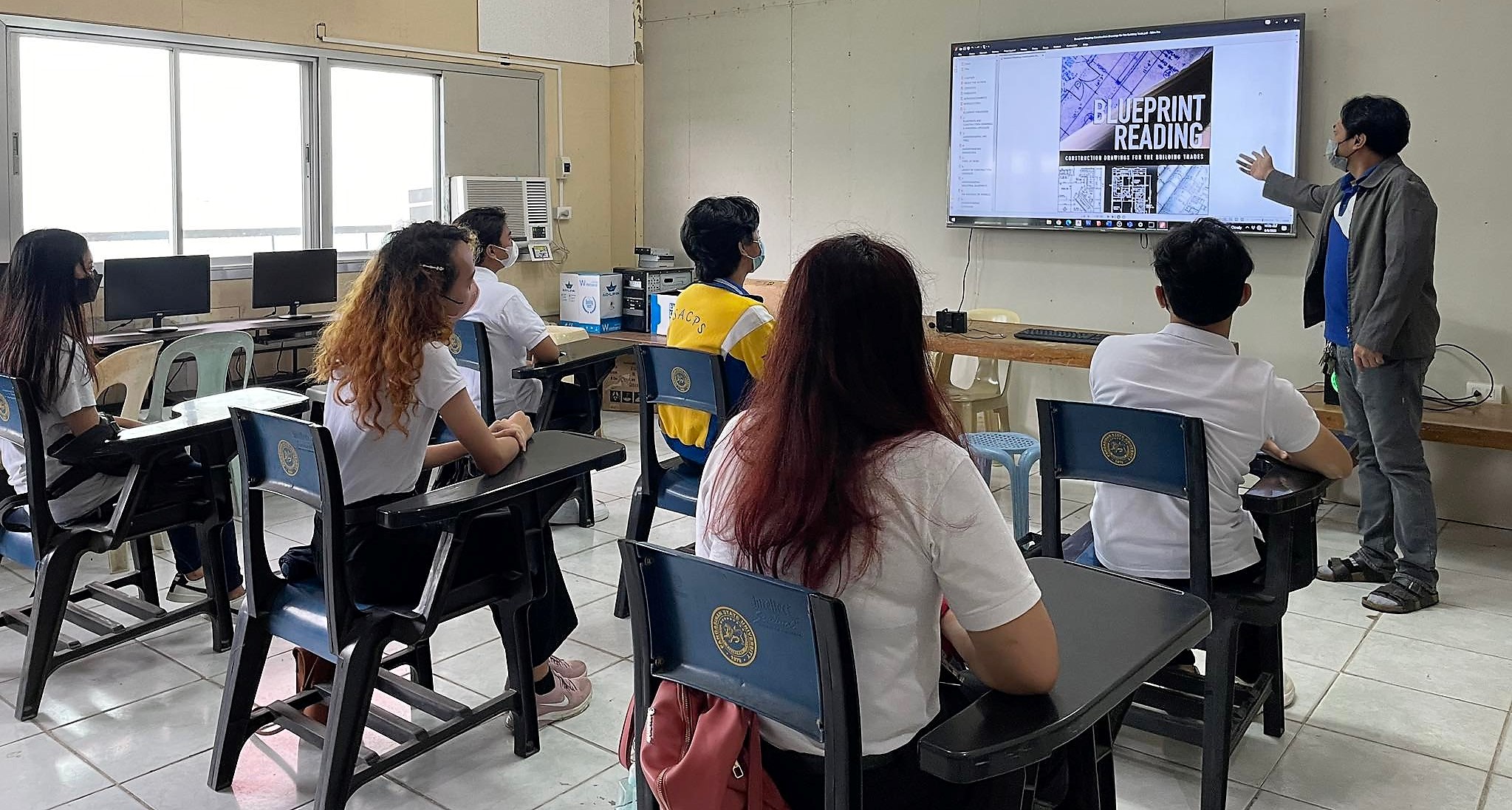


Ar. Prudencio M Sumera Jr is delivering his lecture to the 1st Year Section-D regarding casting Shades and Shadows in the subject Architectural Graphics 2.
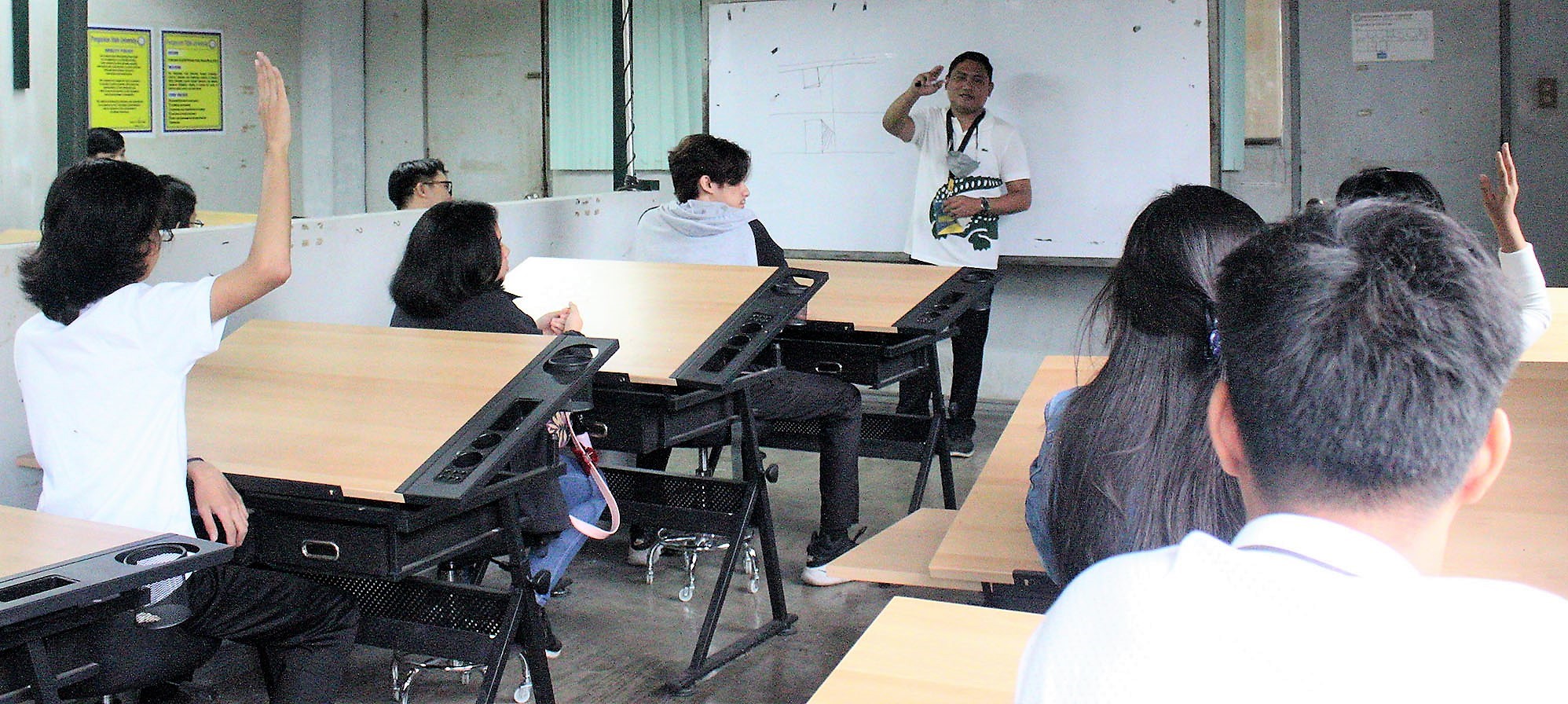

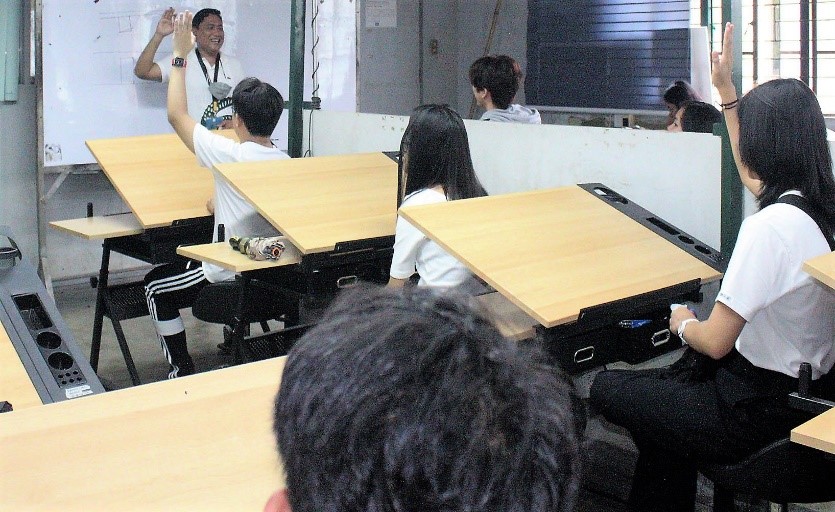
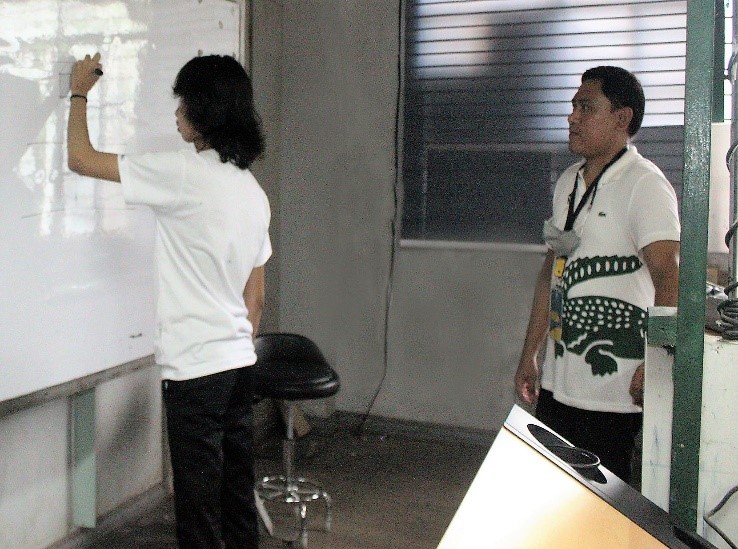
Ar. Jyan M. Delos Reyes lectures to the 1st Year Section-B regarding Properties of Concrete Materials in the subject Building Technology 1.
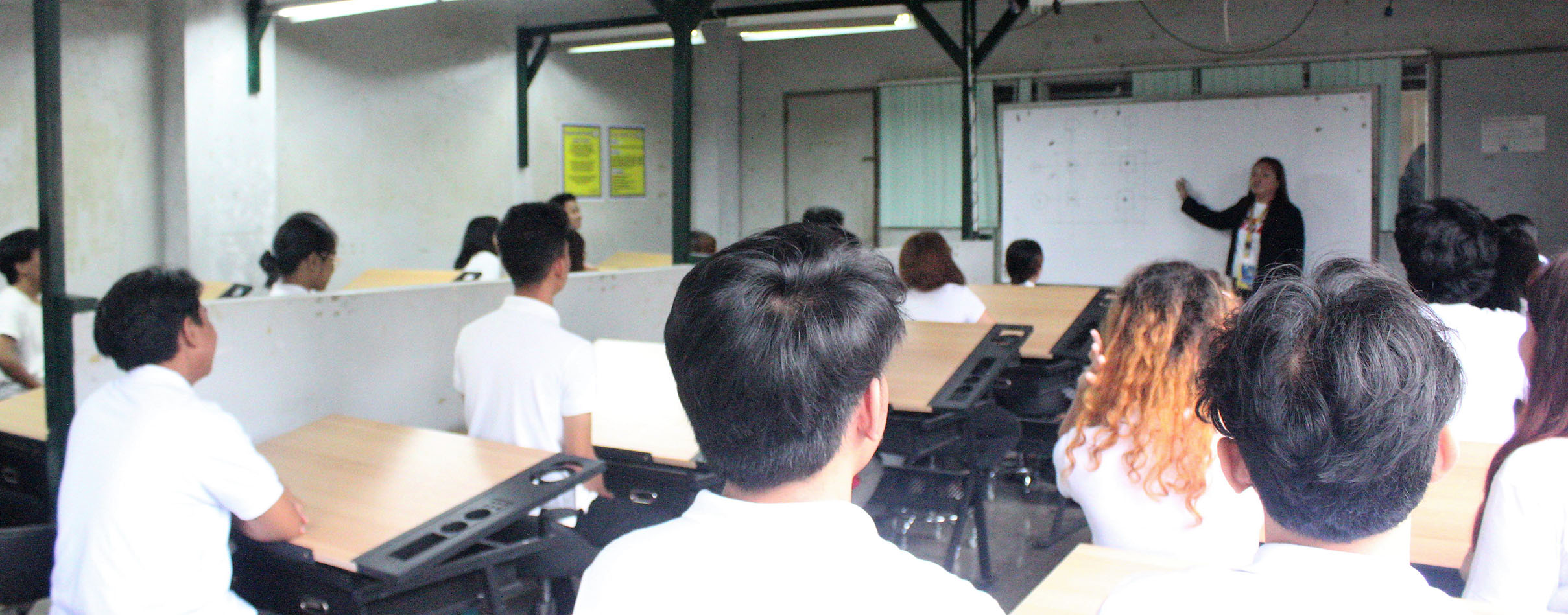
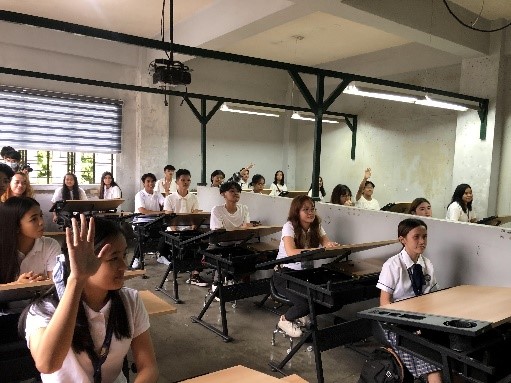
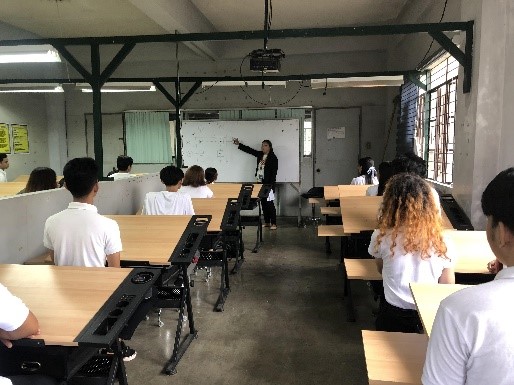
Engr. Elmar T. Antolin conducts lectures to BS Civil Engineering 2nd year students about Shear and Moment Diagram in the subject Mechanics of Deformable Bodies.
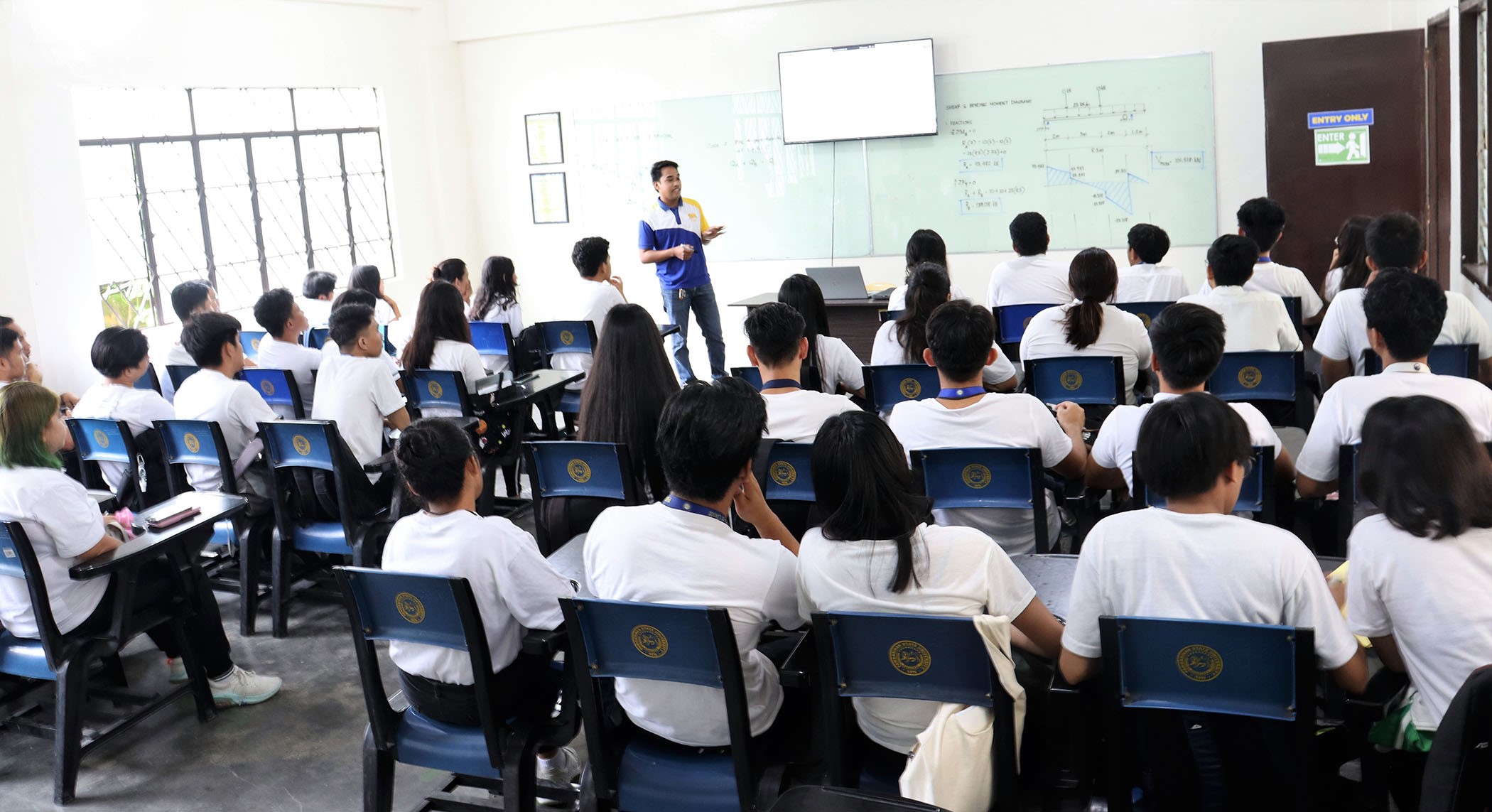
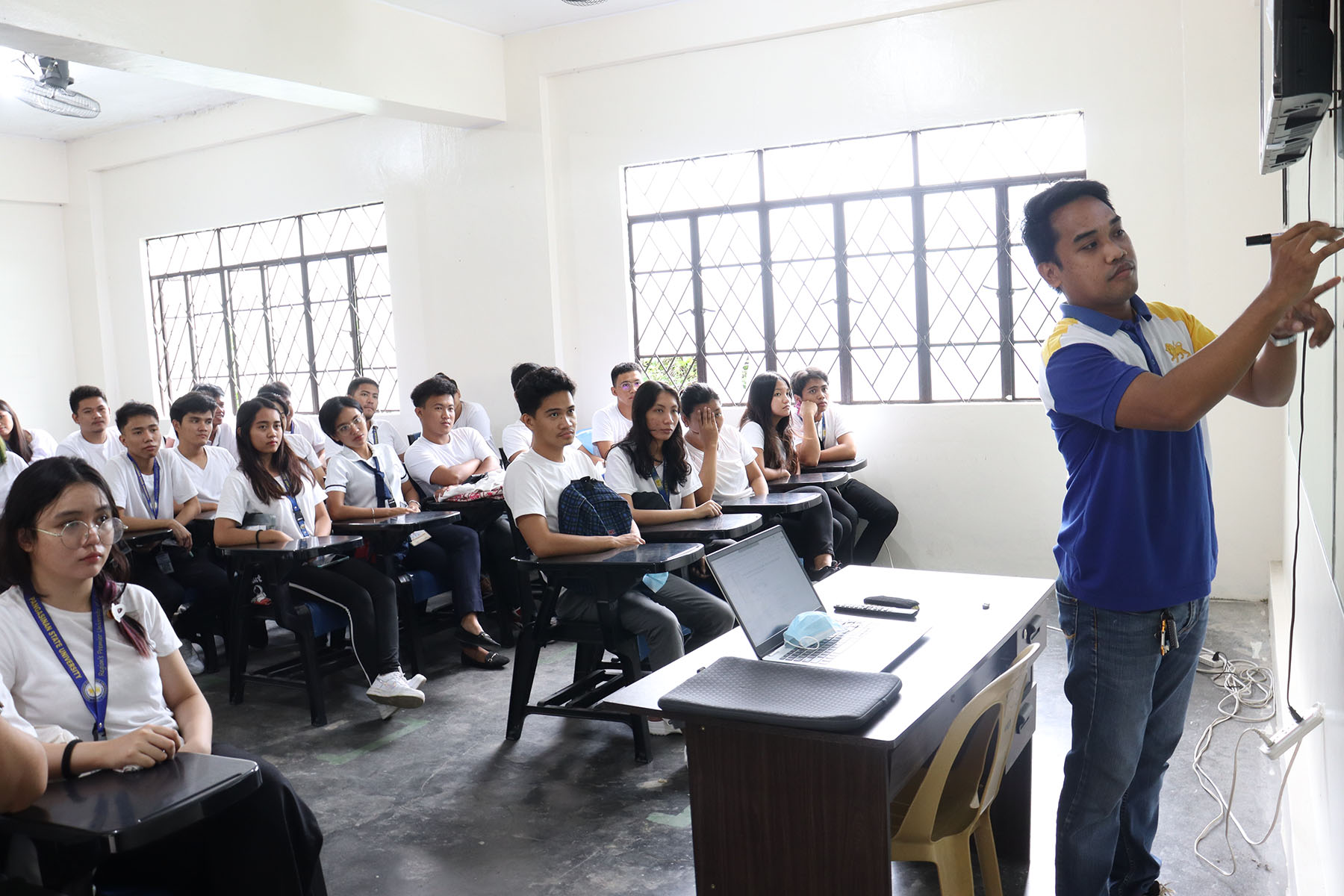
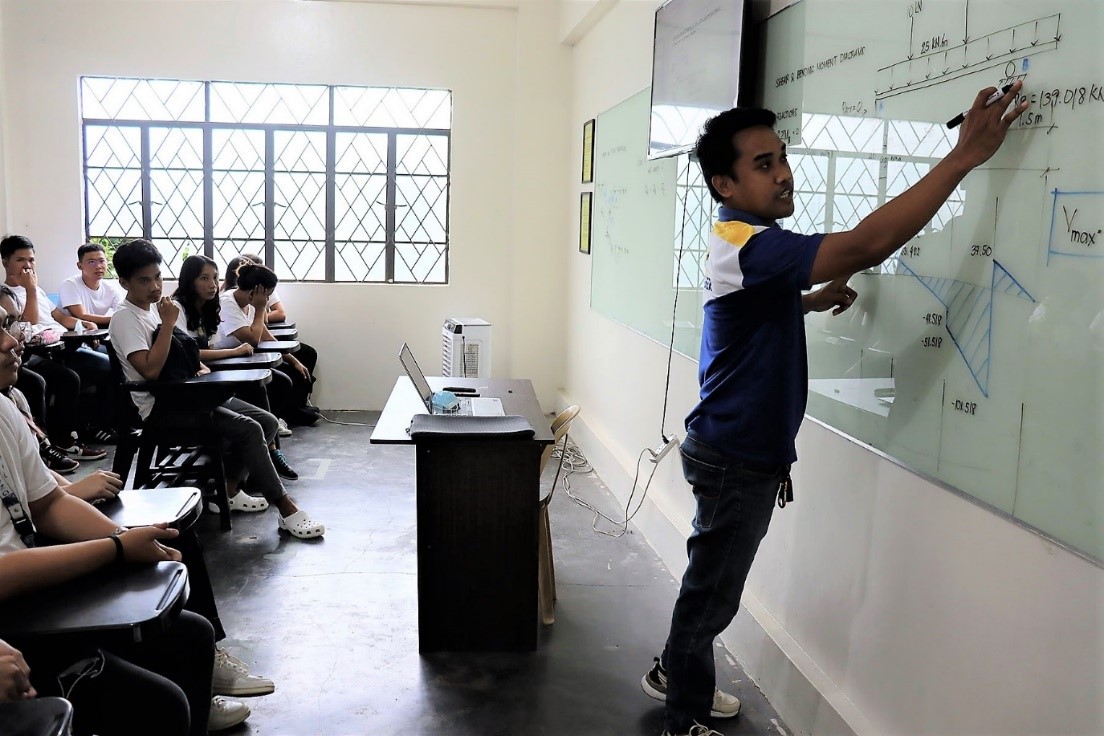
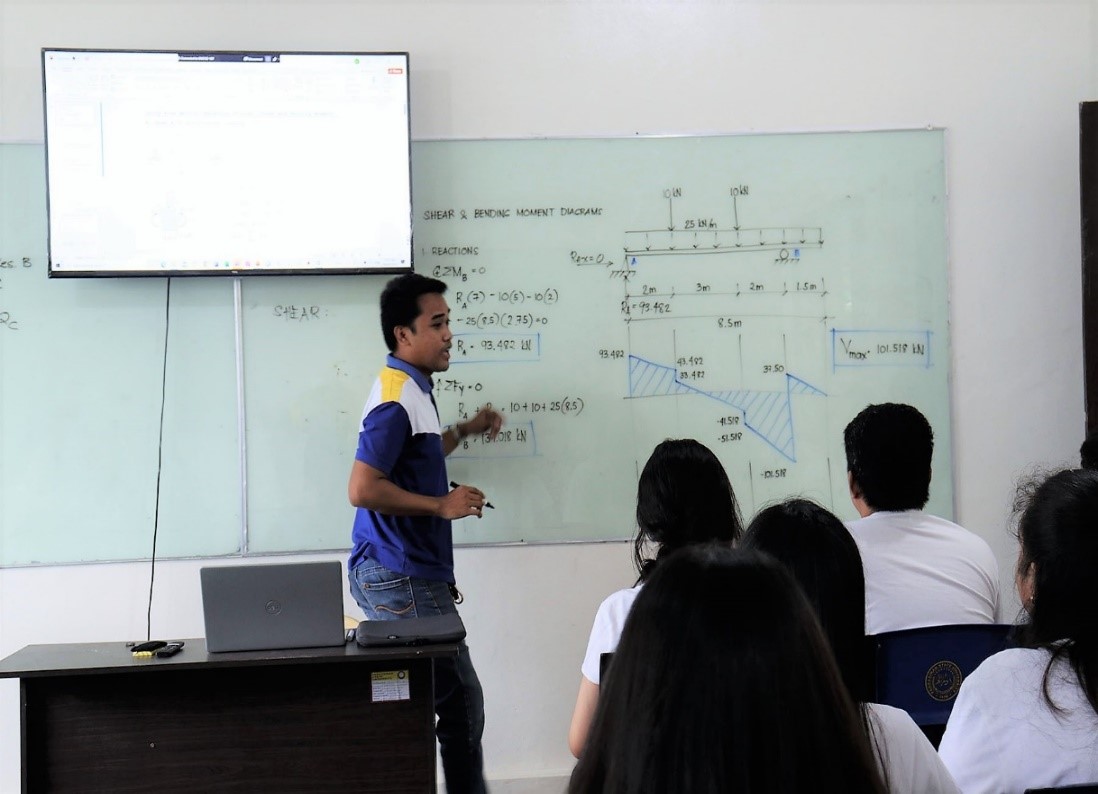
Engr. Leizel M. Locquiao conducts a lecture to BS Civil Engineering 3rd year students about Three-Reservoir in the subject Hydraulics.
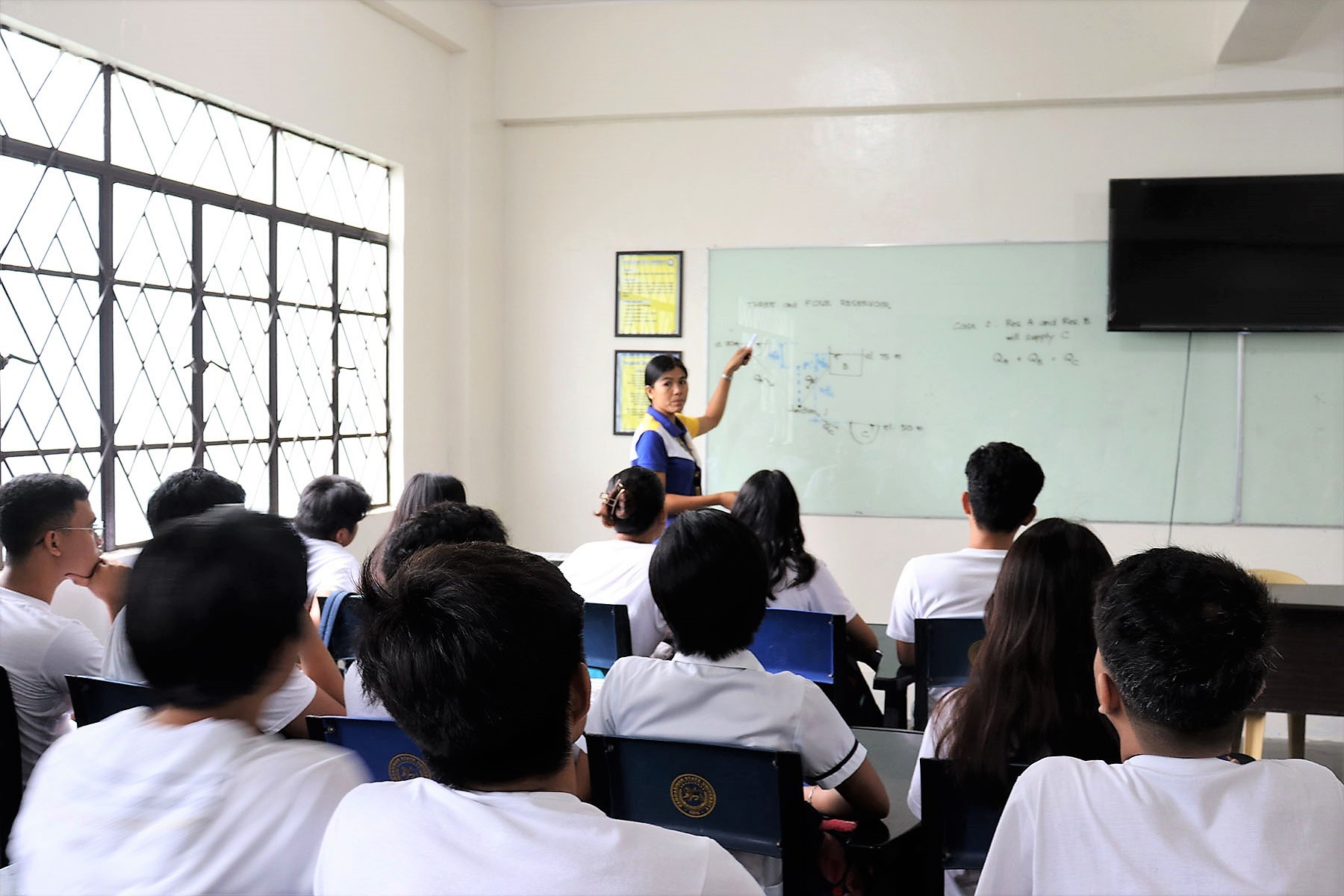
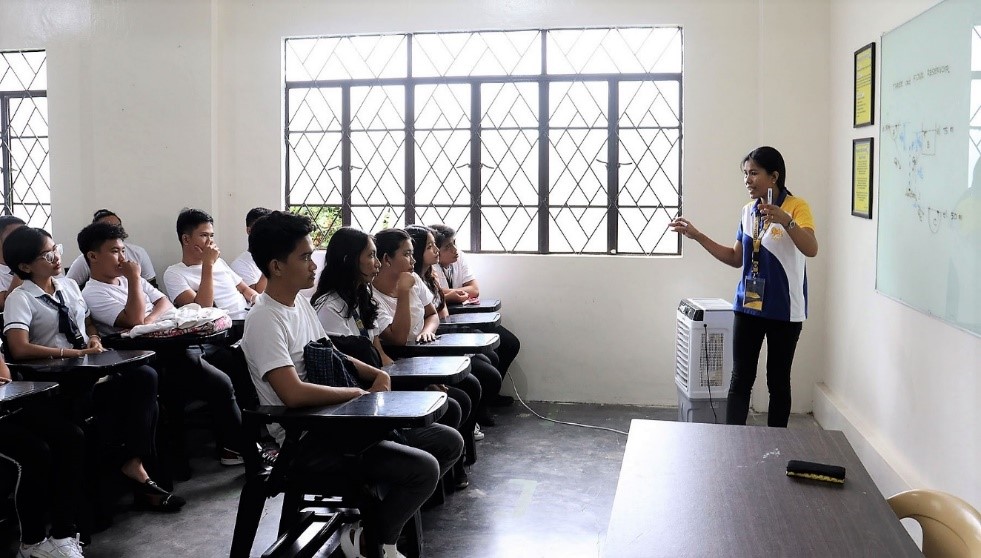
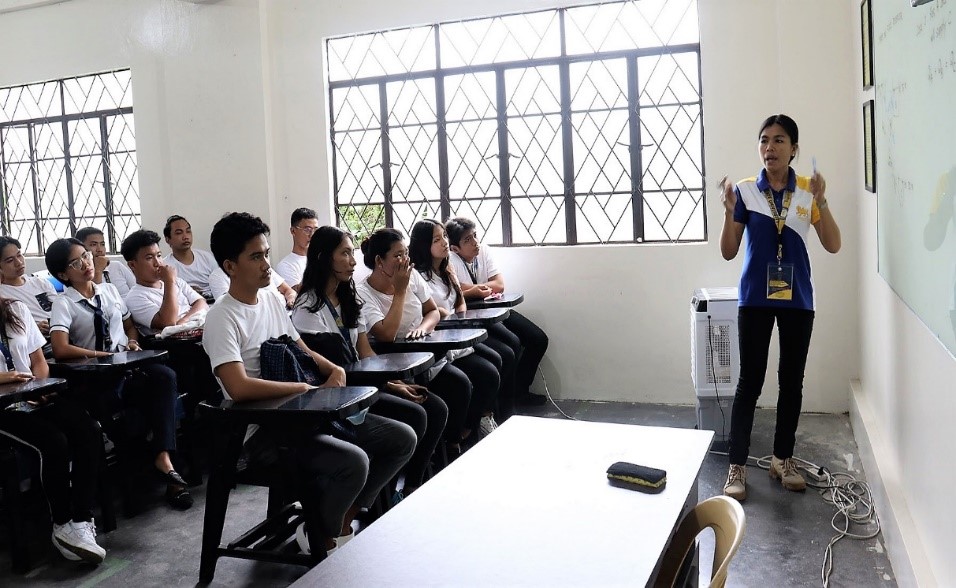
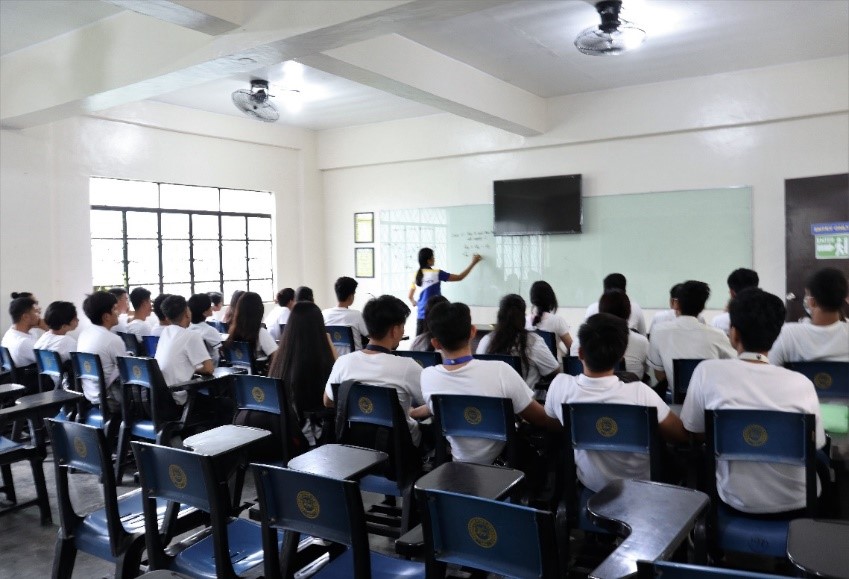
Engr. Marilou Fernandez , the Chair of Mechanical Engineering is conducting her classroom discussion with the 4th year Mechanical Engineering students in their subject, ME Laws, Ethics, Contracts, Codes and Standards
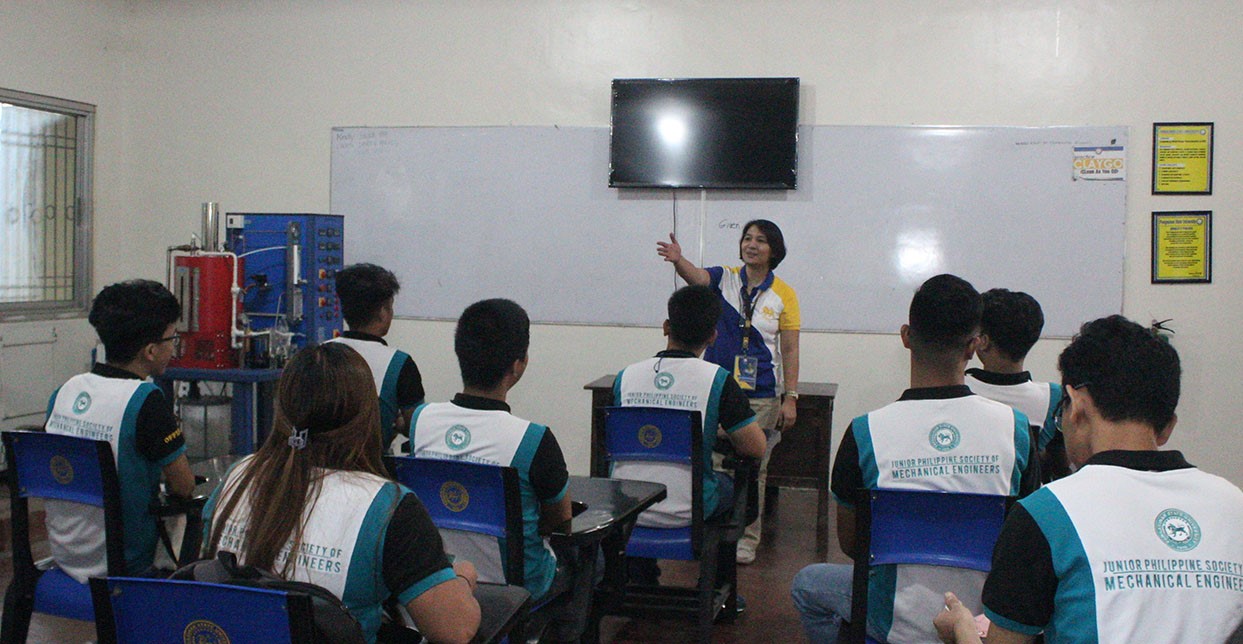
Engr. Wyerlo A. Alcantara, a Mechanical Engineering Faculty during his classroom lecture discussion in the subjec Dynamics of Rigid Bodies to the 2nd year students
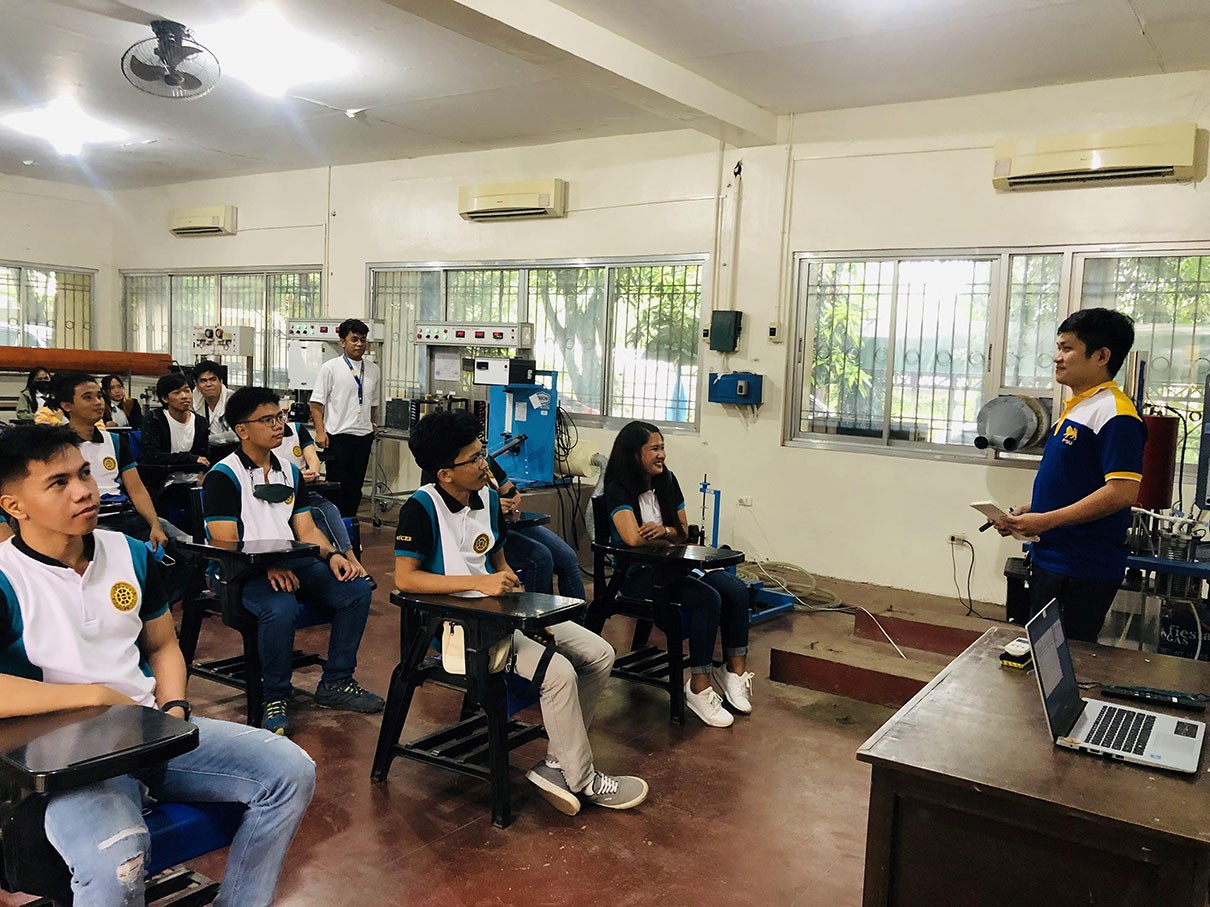
Engr. Harry Errasquin was teaching the subject AC Apparatus using the equipment Electromechanical System to his fourth-year Electrical Engineering class, and asked a volunteer student to perform the activity experiment. Miss Hillary Joy Yambao presented as a volunteer.
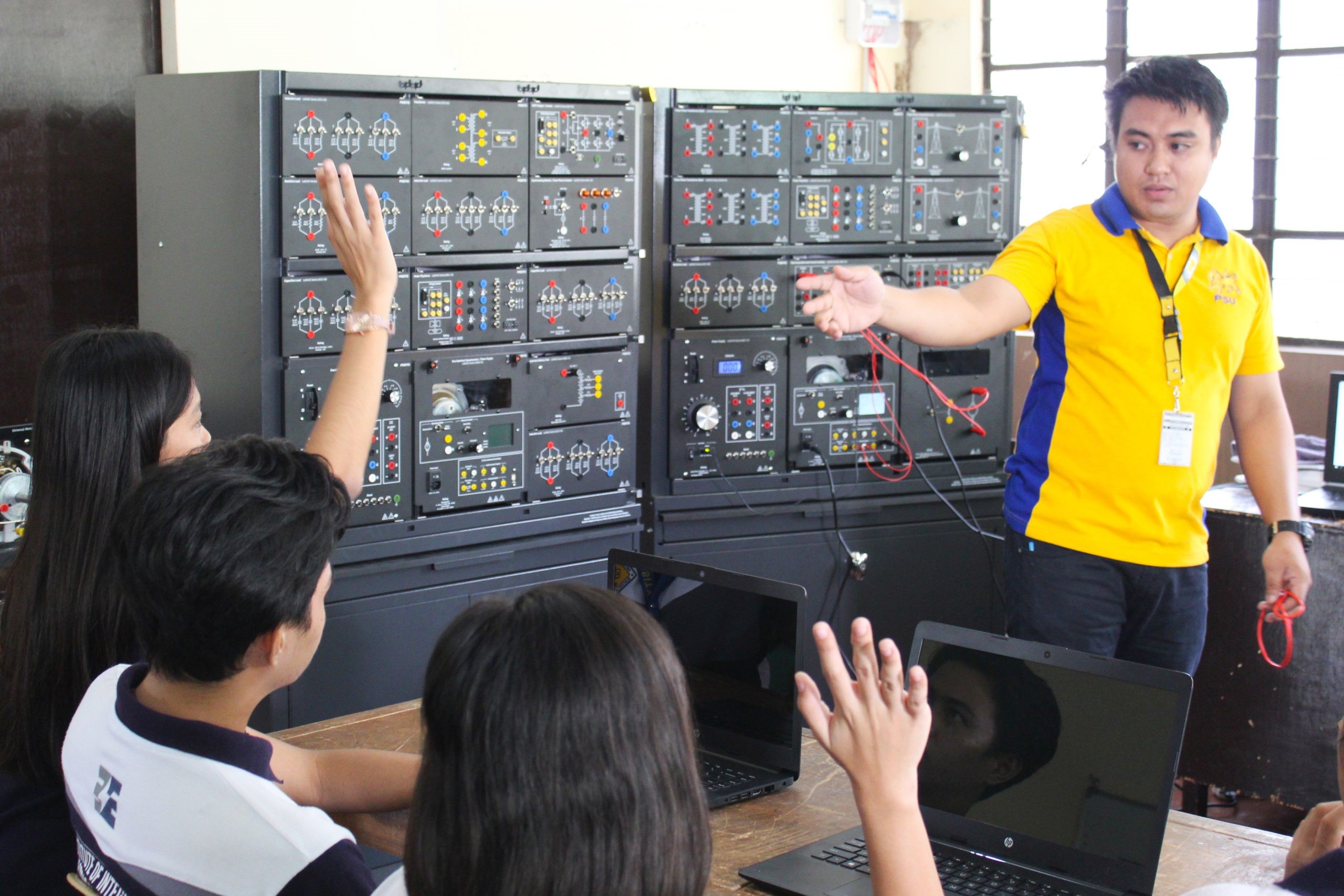
Engr. Harry Errasquin is performing a laboratory exercise demonstration for Engr. Ruben Nicolas and Engr. Socrates Nacis for the subject Transmission lines using the LAVBOLT equipment Smartgrid technologies training system.
